-
US may relinquish leadership of NATO's European command, NBC reports
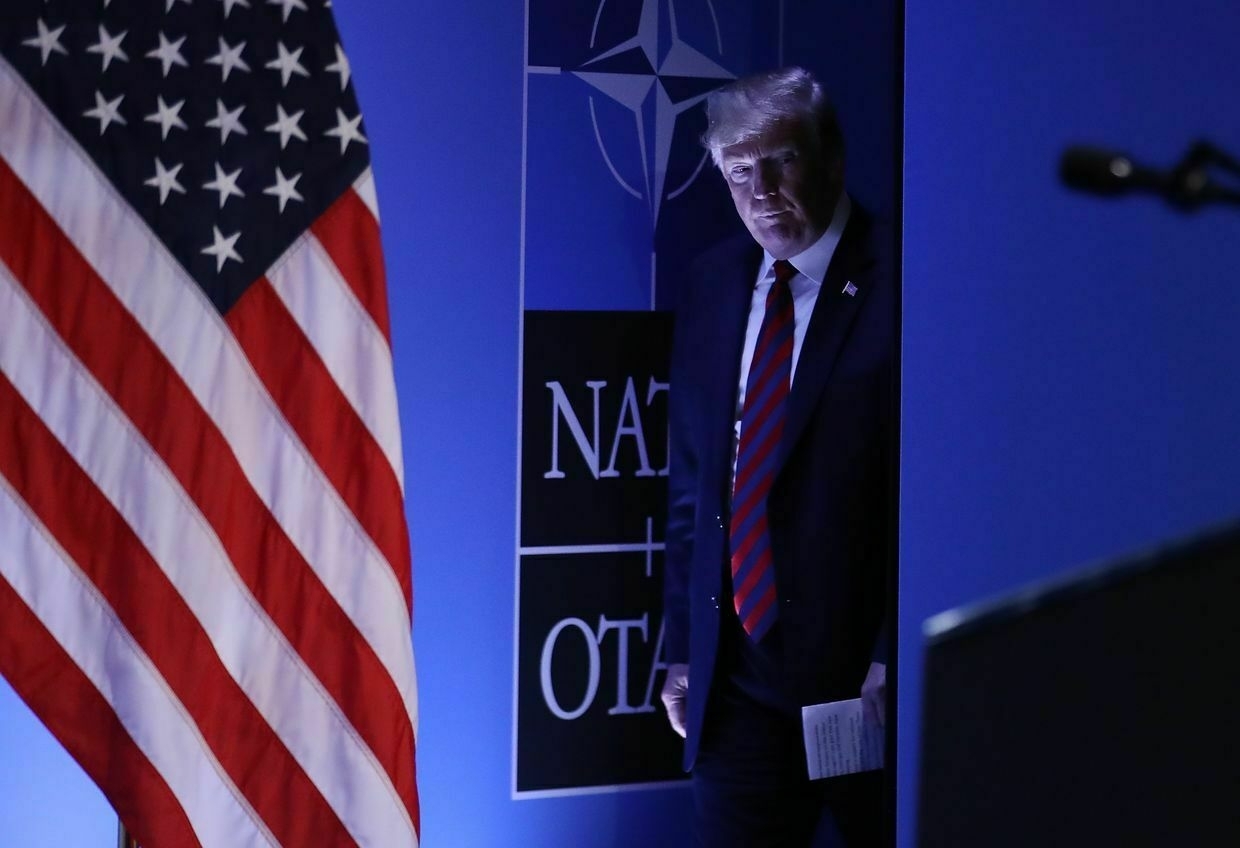
The Trump administration is considering scrapping the longstanding role of the U.S. in leading NATO’s military operations in Europe, NBC News reported on March 18, citing unnamed defense officials.
For nearly 75 years, a four-star U.S. general has held the position of Supreme Allied Commander Europe (SACEUR), overseeing NATO’s military strategy and operations.
According to two defense officials familiar with internal discussions and a Pentagon briefing reviewed by NBC News, the administration is evaluating whether to relinquish this post as part of a broader effort to reduce U.S. commitments in Europe.
Retired Admiral James Stavridis, who served as SACEUR from 2009 to 2013, warned that such a move would dramatically weaken U.S. influence within the alliance.
“We would lose an enormous amount of influence within NATO, and this would be seen, correctly, as probably the first step toward leaving the alliance altogether,” Stavridis said.
The potential shift follows repeated calls by U.S. President Donald Trump and Defense Secretary Pete Hegseth for NATO allies to assume greater responsibility for Europe’s defense.
If Washington abandons the SACEUR role, NATO members would have to determine which European country would nominate a new supreme commander.
The Pentagon has not commented on the matter.
Trump has long demanded that NATO allies increase their military spending. He previously called for the alliance to raise its benchmark from 2% to 5% of the GDP.
Italy, Canada, and Spain remain below the current 2% target. Some NATO members are reportedly considering raising the spending target to 3% by 2030.
In 2023, Trump suggested that Russia should be allowed to “do whatever the hell they want” to alliance members failing to meet their defense obligations, a statement widely interpreted as undermining NATO’s unity.
Trump administration cuts funding for initiative tracking Russian abductions of Ukrainian children, WP reportsResearchers reportedly lost access to the database last month after U.S. officials terminated the contract, cutting off critical evidence from investigators pursuing war crimes cases.The Kyiv IndependentOlena Goncharova
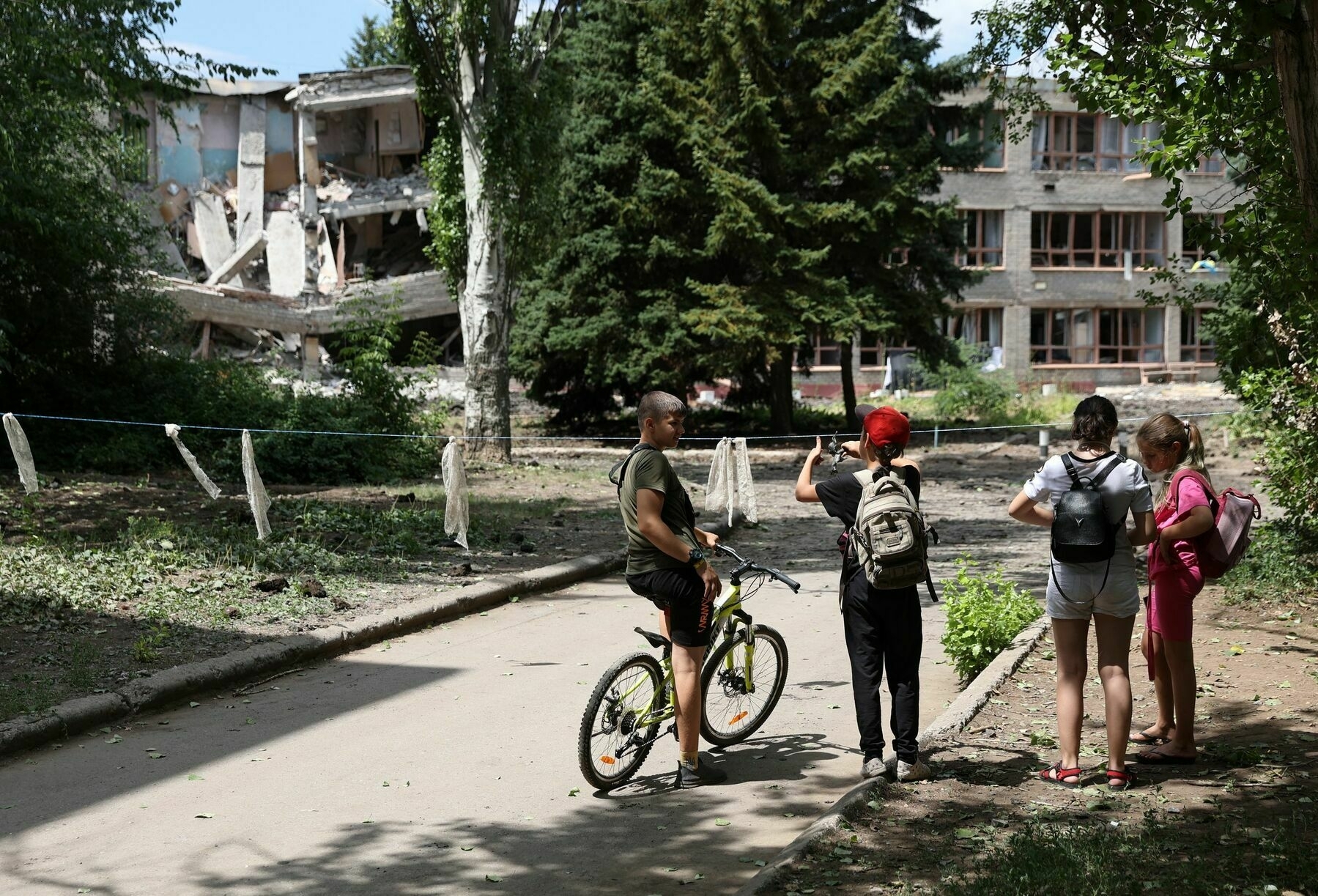
-
2 killed, 18 injured in Russian attacks against Ukraine over past day
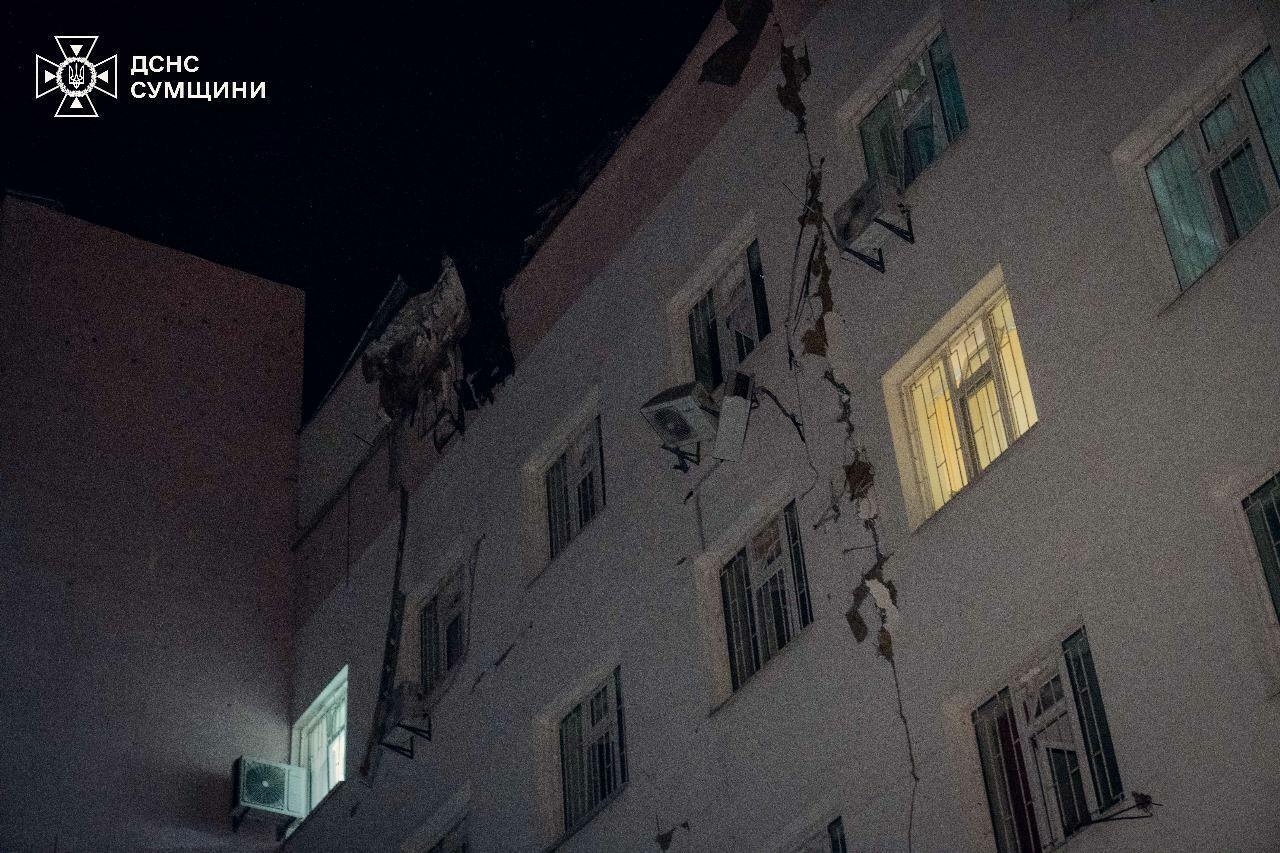
Russian attacks across Ukraine killed at least two civilians and injured at least 18 over the past day, regional authorities reported on March 19.
Russia launched two Iskander-M ballistic missiles, four S-300 anti-aircraft missiles, and 145 attack and decoy drones against Ukraine overnight, the Air Force reported. Ukrainian air defenses shot down 72 drones over 12 oblasts, while 56 decoy drones disappeared from radars without causing damage, according to the statement.
The Air Force did not comment on the consequences of the missile strikes.
Russian attacks against Donetsk Oblast injured three people in Sloviansk late on March 18, Governor Vadym Filashkin reported. Part of the city was reportedly left without electricity, even as Russian President Vladimir Putin agreed with U.S. President Donald Trump to temporarily halt energy strikes against Ukraine a few hours earlier.
In Kharkiv Oblast, a 45-year-old woman was killed and four people were injured when a Russian first-person-view (FPV) drone hit a service car of a utility company on the Kupiansk-Kindrashivka highway, Governor Oleh Syniehubov reported.
Houses, a warehouse, tractors, and cars were damaged elsewhere in the region.
Seven people were injured in Russian attacks against Kherson Oblast, Governor Oleksandr Prokudin reported. Four apartment buildings and 29 houses were damaged.
A 60-year-old man was injured during strikes in the Bucha district of Kyiv Oblast, according to the regional military administration. Nine houses were damaged or partially destroyed in three different settlements of the district.
A hospital in Ukraine’s northeastern city of Sumy and another in the town of Krasnopillia in Sumy Oblast were hit by drones, authorities said. Patients have been evacuated, and no injuries were reported. The blast in Sumy also damaged the premises of a children’s medical facility, according to the State Emergency Service.
Separately, a Russian attack on the village of Uhroidy in the Krasnopillia community killed one person, injured three, and damaged a two-story house, the regional military administration reported.
On the morning of March 19, Russian drones struck the railway power grid in Dnipropetrovsk Oblast, causing partial outages but not disrupting train schedules, Ukrainian Railways (Ukrzaliznytsia) announced.
Kyiv supports energy sector ceasefire, expects military aid to continue, Zelensky says“We will support such a proposal, but we’re very interested in the details,” Zelensky said, in reference to a proposed 30-day ceasefire on energy infrastructure attacks.The Kyiv IndependentAbbey Fenbert
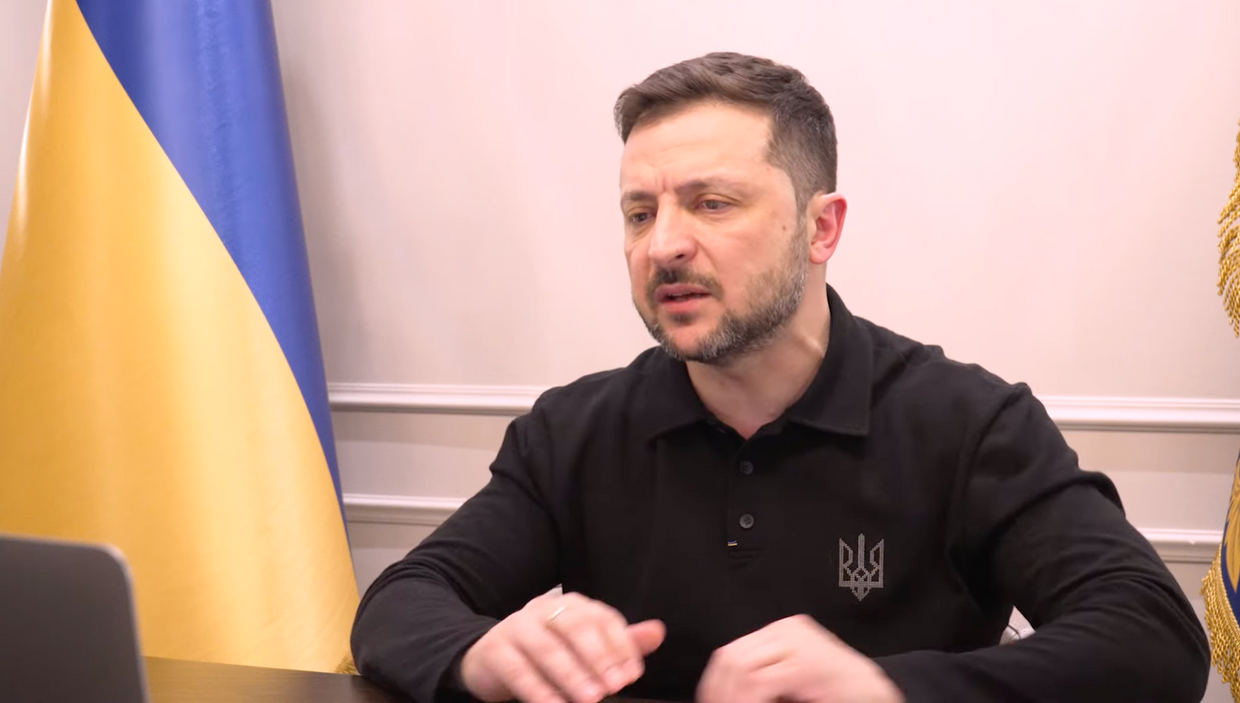
-
Trump administration cuts funding for initiative tracking Russian abductions of Ukrainian children, WP reports
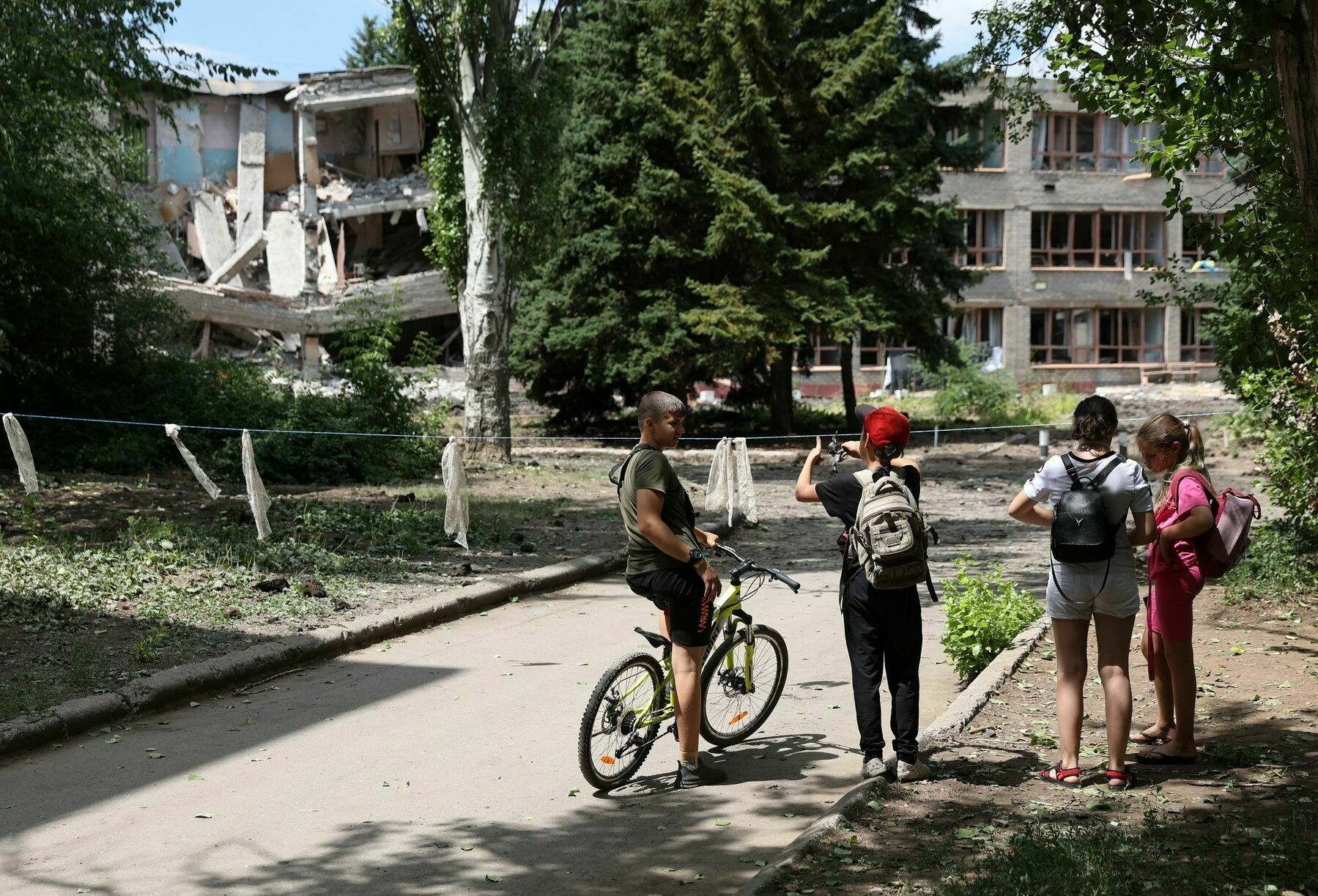
The Trump administration has ended U.S. government funding for an initiative that tracked Russian war crimes, including the forced deportation of Ukrainian children, the Washington Post (WP) reported on March 18.
The program, led by Yale University’s Humanitarian Research Lab under the State Department’s Conflict Observatory, collected biometric data and satellite imagery to document Russia’s abduction of Ukrainian children. Researchers lost access to the database last month after officials terminated the contract, cutting off critical evidence from investigators pursuing war crimes cases, the WP reported.
Lawmakers are alarmed that the research lab’s database may have been permanently deleted, jeopardizing efforts to locate the children and hold those responsible accountable.
A group of U.S. representatives, including Democrat Greg Landsman, warned Secretary of State Marco Rubio that losing the data would have “devastating consequences,” according to a copy of the letter obtained by the WP.
The database, which contained detailed dossiers on thousands of Ukrainian children taken to Russia, was being transferred to Europol to support international prosecutions. However, the funding cut blocked that process.
No more lost territory, return of deported children — Kyiv names red lines for peace deal, Independent reports“It is not reasonable to demand that, for example, Zaporizhzhia or Kherson be fully handed over — that sounds like a f*** off to us,” a high-level Ukrainian official said.The Kyiv IndependentAbbey Fenbert
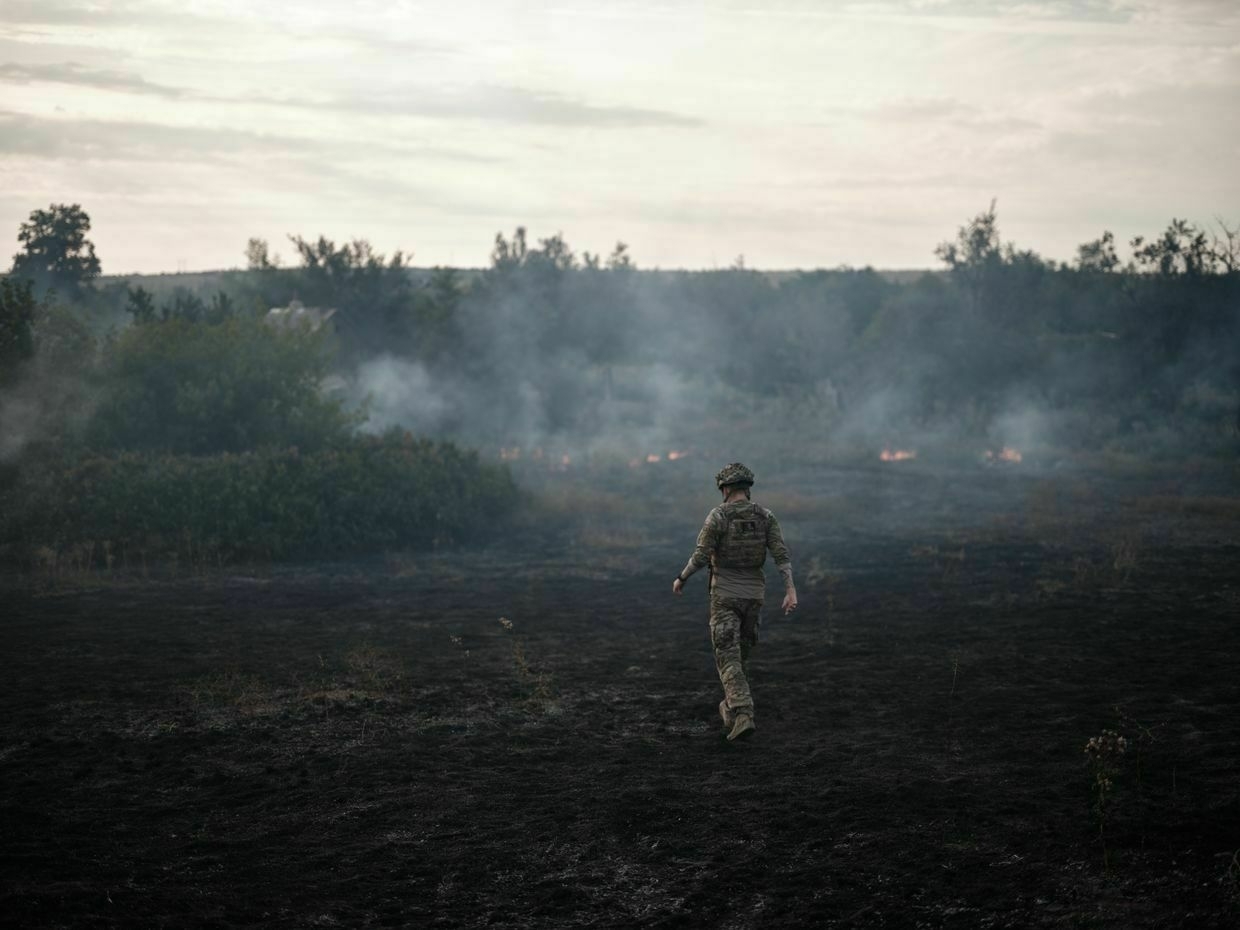
The Observatory’s research has been a key source of evidence for international investigations. It contributed to multiple reports on Russia’s actions in Ukraine and played a role in securing six International Criminal Court (ICC) indictments, including the 2023 arrest warrant for Russian President Vladimir Putin and his commissioner for children’s rights, Maria Lvova-Belova.
The ICC accused them of overseeing the unlawful deportation of Ukrainian children, an act Ukraine considers an attempt to erase their national identity.
Despite Moscow’s claims that it relocates children from combat zones for their safety, Ukraine and human rights groups argue that Russia is systematically adopting and indoctrinating them.
Putin even signed a decree in 2022, making it easier for Russian families to adopt Ukrainian children. The Observatory’s reports identified at least 35,000 children affected by these forced transfers, with researchers insisting that their findings are crucial for Ukraine’s efforts to bring them home.
The Ukrainian government has managed to return 1,240 children so far, according to the Ukrainian national database “Children of War."
-
2 Sumy Oblast hospitals hit by drones hours after Putin agrees to halt energy grid attacks
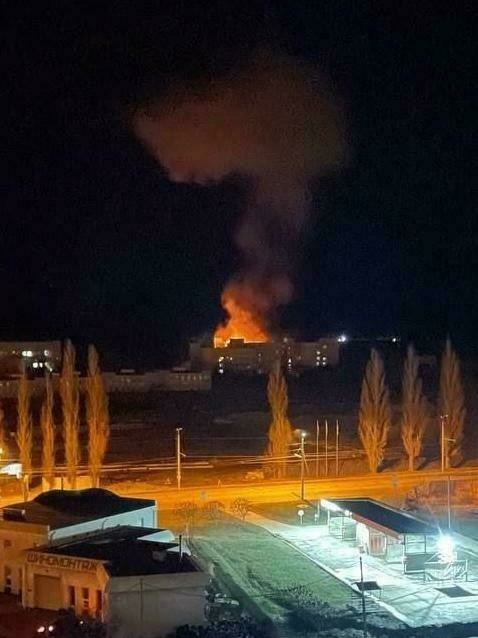
A hospital in Ukraine’s northeastern city of Sumy and another in the town of Krasnopillia were hit by drones during a series of attacks on Ukraine, prompting President Volodymyr Zelensky to accuse Vladimir Putin of “effectively rejecting” a ceasefire.
No casualties were reported following the Sumy Oblast strikes at the time of publication. First responders have been dispatched to the sites of the attacks.
This came after a call between U.S. President Donald Trump and the Russian president, in which Putin had agreed to halt strikes on Ukraine’s energy infrastructure. The Kremlin had announced that Putin had given immediate orders to cease such attacks.
However, shortly after the call, air raid sirens blared, and explosions rocked Ukraine.
Zelensky confirmed the strikes targeted civilian infrastructure. Local reports indicated that power infrastructure in Donetsk Oblast’s Slovyansk was damaged, causing partial blackouts.
Kremlin demands halt to foreign military aid, intelligence to Ukraine as condition for avoiding war escalationThe Kremlin has demanded a complete cessation of foreign military aid and intelligence to Ukraine as a “key condition for avoiding an escalation of the war,” according to a statement released on March 18.The Kyiv IndependentKateryna Hodunova
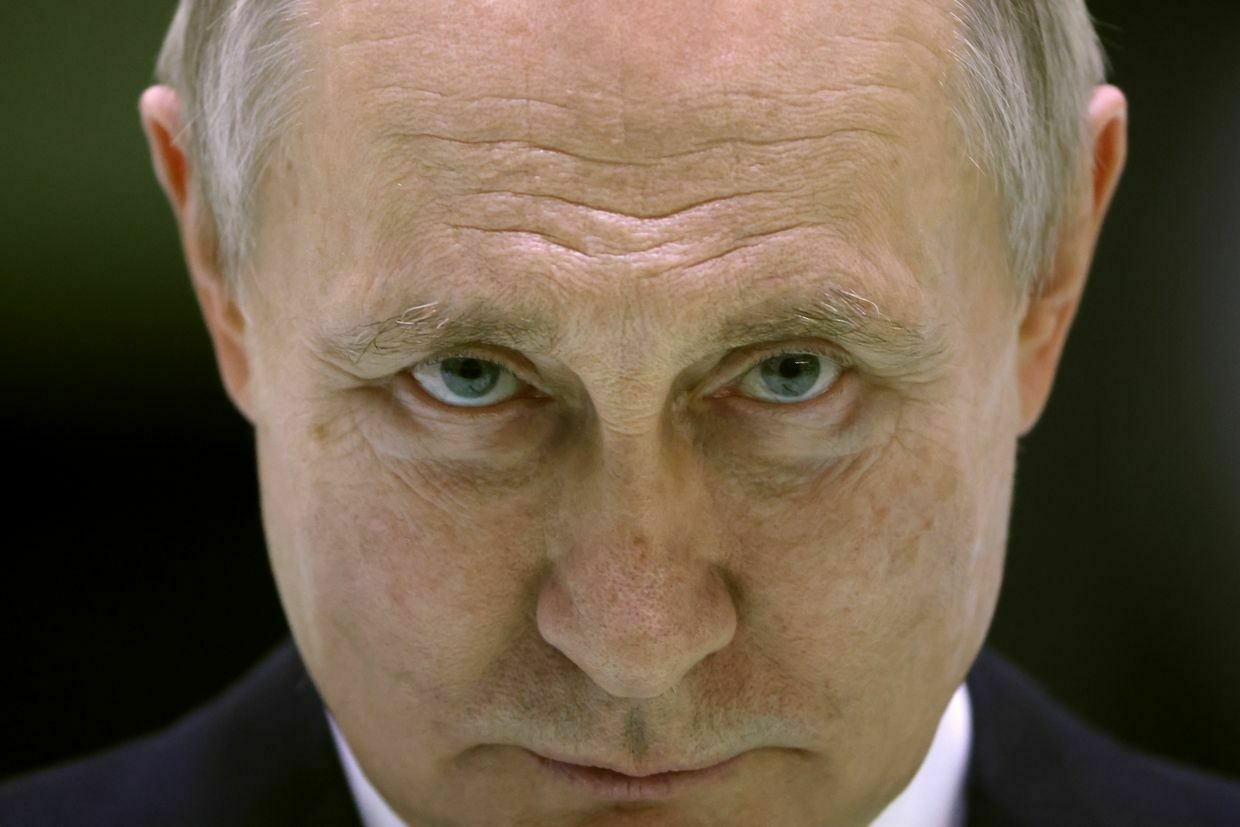
According to Zelensky, over 40 Russian drones were launched in the assault.
“It is precisely such night attacks by Russia that destroy our energy systems, our infrastructure, the normal life of Ukrainians. And the fact that this night was no exception shows that pressure must continue on Russia for the sake of peace,” he said.
“Today, Putin de facto rejected the proposal for a complete ceasefire. It would be right for the world to reject in response any attempts by Putin to drag out the war,” the president said.
Sumy Oblast borders Russia’s Bryansk, Kursk, and Belgorod oblasts. Residents of the vulnerable border communities experience multiple attacks per day.
Who is to gain more from a ceasefire — Russia or Ukraine?U.S. President Donald Trump said on March 17 that he expects to hold a phone call with his Russian counterpart Vladimir Putin to discuss a U.S.-backed ceasefire proposal that Moscow has yet to agree to. Russia has declined to immediately accept the 30-day ceasefire proposal, with theThe Kyiv IndependentOleg Sukhov
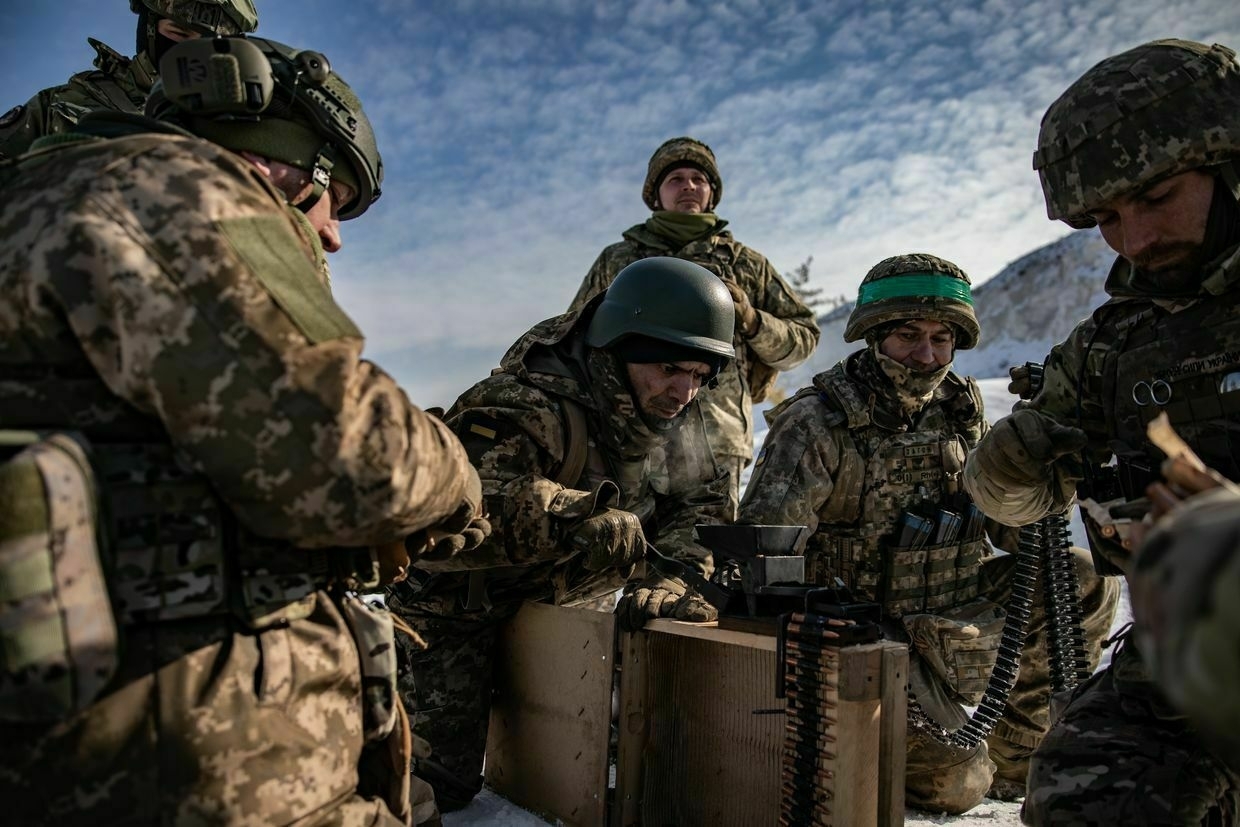
-
US-Russia ceasefire talks set for March 23 in Jeddah, US envoy Witkoff says
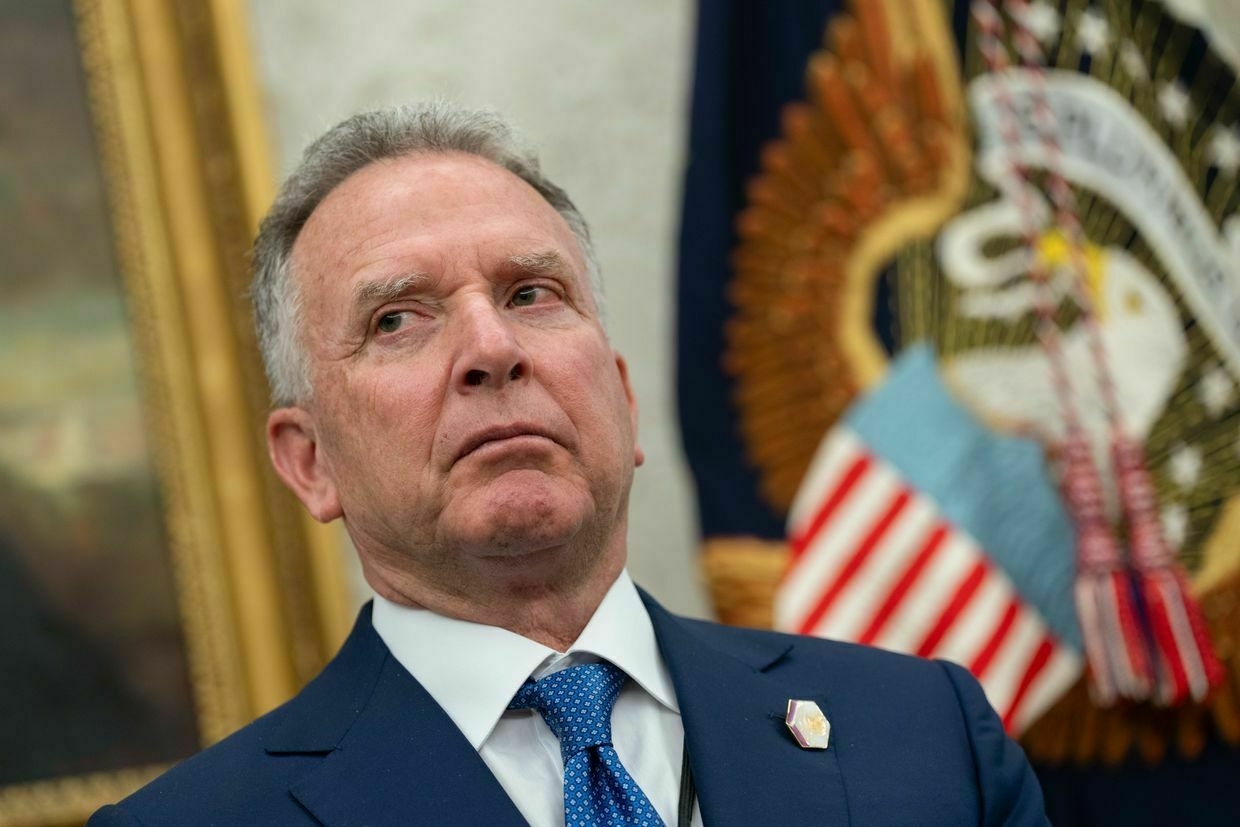
U.S. envoy Steve Witkoff told Fox News on March 18 that diplomatic talks between the U.S. and Russia will take place on March 23 in Jeddah, Saudi Arabia.
The discussions, led by National Security Adviser Mike Waltz and Secretary of State Marco Rubio, will focus on key details regarding the ceasefire.
It remains unclear whether Ukraine will be invited to the talks.
“Up until recently, we really didn’t have consensus around these two aspects - the energy and infrastructure ceasefire and the Black Sea moratorium on firing - and today we got to that place, and I think it’s a relatively short distance to a full ceasefire from there,” Witkoff, U.S. President Donald Trump’s special envoy to the Middle East, said on air.
Russian President Vladimir Putin agreed to a 30-day halt on strikes against energy infrastructure during a call with Trump, according to a Kremlin readout issued on March 18.
The statement followed the 1.5-hour phone call between Putin and Trump, during which they discussed ending the war in Ukraine and the U.S. proposal for a 30-day ceasefire to allow for further peace talks.
“During the conversation, Donald Trump proposed a mutual refusal of the parties to the conflict to strike for 30 days on energy infrastructure facilities,” the statement read. “Vladimir Putin responded positively to this initiative and immediately gave the appropriate command to the Russian military."
The Kremlin also said Putin “responded constructively to Donald Trump’s idea of implementing a well-known initiative concerning the safety of navigation in the Black Sea."
“It was agreed to begin negotiations to further elaborate specific details of such an agreement,” the statement added.
-
Putin didn't mention military aid in phone call, Trump says
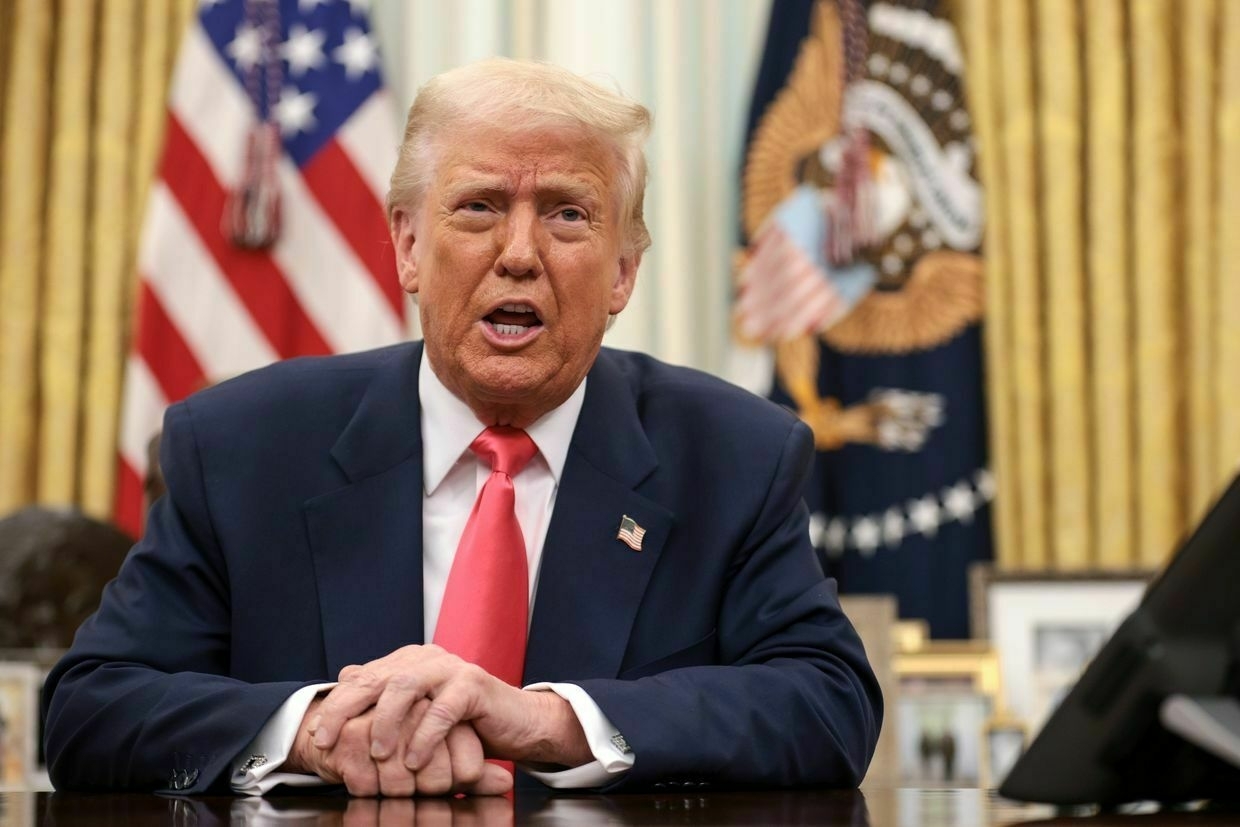
Russian President Vladimir Putin did not discuss military aid to Ukraine during his phone call with U.S. President Donald Trump, according to an interview Trump gave with Fox News following the call.
Trump and Putin spoke for nearly two hours on March 18. During the call, Putin agreed to accept a limited 30-day pause on energy infrastructure attacks but did not agree to the broader ceasefire proposed by the U.S. The Kremlin later issued a statement demanding Ukraine stop receiving foreign military aid as a condition of the ceasefire.
In an interview with Fox News correspondent Laura Ingraham following the call, Trump denied that Putin demanded a freeze on military aid to Kyiv.
“No he didn’t, we didn’t talk about aid, actually we didn’t talk about aid at all,” Trump said.
“We talked about a lot of things, but aid was never discussed.”
Trump described the conversation as “a great call” and said that other topics included improving U.S.-Russian relations and expanding trade.
“With Russia we don’t have that much trade, and they’d like to, and we’d like to also,” he said.
“They have some valuable things for us, including very big forms of rare earth. They have a lot of earth, you know. They have a big chunk of real estate. The biggest, actually. The biggest in the world, for a country, by far. And on that, they have things that we could use, frankly, and other people could use."
Trump has previously expressed interest in exploring Russia’s significant mineral deposits, even as he simultaneously pursues a natural resources deal with Kyiv. Putin also said on Feb. 24 that Moscow is open to working with foreign partners on developing rare earth metals, including in occupied regions of Ukraine.
After the March 18 call, the Kremlin issued a statement saying Trump and Putin were open to developing “mutually beneficial cooperation in the economy and energy sector."
“I think Russia wants to get along with the United States,” Trump told Fox News.
Russia is interested in gaining accesss to American “economic power,” he added.
While Trump denied that Putin personally demanded a freeze on military aid to Ukraine during the phone call, he did not say whether the U.S. would agree to such a demand. The U.S. earlier this month suspended military aid and intelligence sharing to Ukraine for a week following a White House clash between Trump and President Volodymyr Zelensky.
The U.S. resumed sending weapons and intelligence after Ukrainian officials held talks with a White House delegation in Jeddah, Saudi Arabia on March 11.
Zelensky told reporters on March 18 that he did not believe Ukraine’s allies would agree to Russia’s demands for a freeze on military aid.
‘I don’t want us to be on Putin’s menu’ — Zelensky says negotiations must include Ukraine“We are an independent state. Without us, I think it’s wrong to negotiate,” President Volodymyr Zelensky said on March 18.The Kyiv IndependentAbbey Fenbert
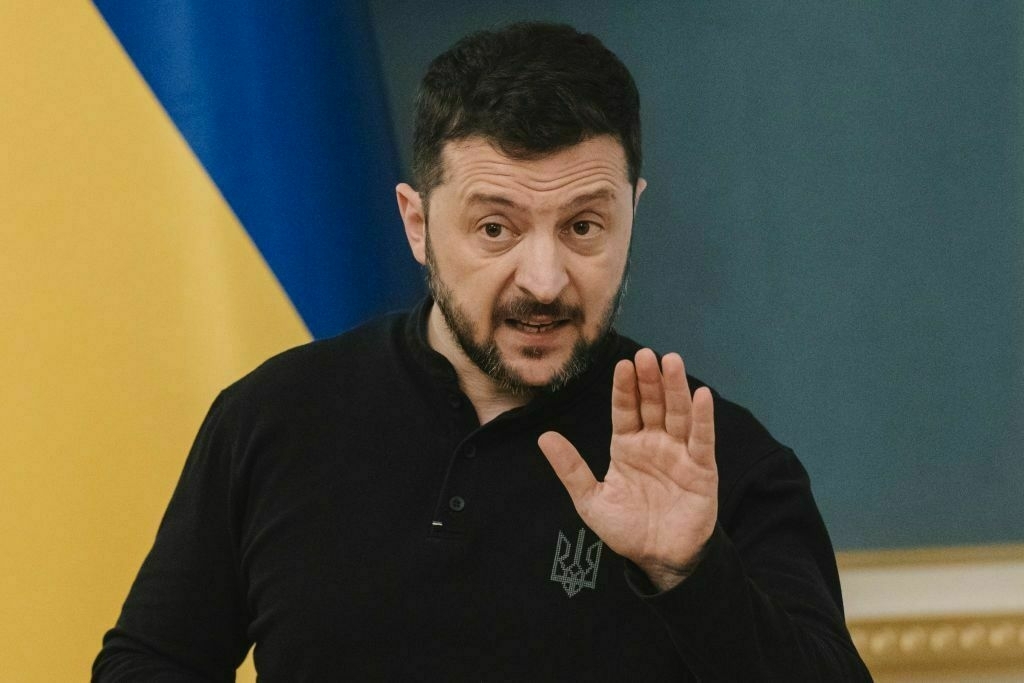
-
'I don't want us to be on Putin's menu' — Zelensky says negotiations must include Ukraine
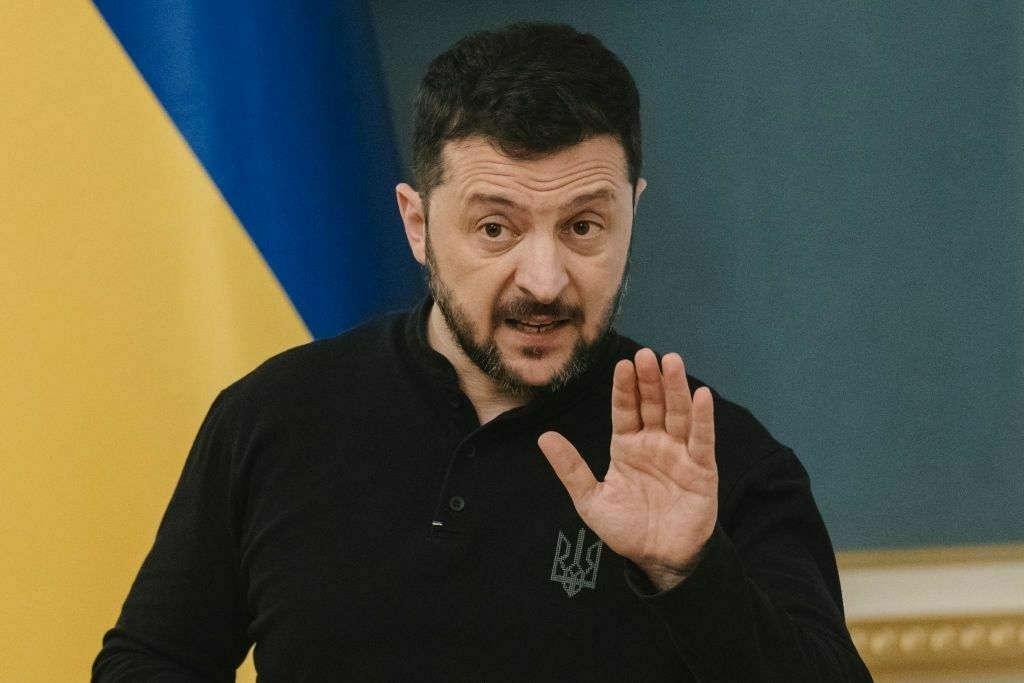
Ukraine must be included in all future negotiations regarding steps to end Russia’s full-scale war, President Volodymyr Zelensky said in a virtual press conference on March 18.
Zelensky’s comments followed a phone call between U.S. President Donald Trump and Russian President Vladimir Putin, who discussed the possibilities of a temporary ceasefire. Afterwards, Washington and Moscow announced that they planned to hold negotiations in the Middle East “immediately.”
“I don’t want to offend anyone, but I don’t want us to be on Putin’s menu,” Zelensky said.
“We are not a salad … We are an independent state. Without us, I think it’s wrong to negotiate.”
In his call with Trump, Putin said he was prepared to accept a 30-day pause on all attacks targeting energy infrastructure — a proposal Zelensky signaled he was willing to accept, once Kyiv was briefed on the details.
Following the call, the White House and the Kremlin issued separate statements both affirming plans to hold peace negotiations in the Middle East. The talks will focus on the energy sector ceasefire and steps towards implementing a maritime ceasefire in the Black Sea.
Ukraine supports any proposals that lead to a just peace, Zelensky said, and must not be excluded from these negotiations.
“We must understand what is going on. … Because in this war, there are two sides. Russia and Ukraine. And without Ukraine, it seems to me that it is hopeless to negotiate.”
Zelensky also said that Putin’s rejection of the first U.S. ceasefire plan — a 30-day cessation of all hostilities, which Ukraine agreed to on March 11 — illustrated Russia’s disinterest in ending the war.
“If you didn’t want to continue the war on March 11, the numbers would probably be different,” he said.
“And the numbers are as follows: 1342 KABs, eight rockets, 580 Shaheds, 44 Lancets, 250 other strikes. Not on the battlefield — we are talking about everything, about civilian infrastructure.”
Zelensky said that despite Putin’s demand that Ukraine stop receiving military aid in order to advance a ceasefire agreement, Kyiv expects its allies to continue providing security assistance. He also confirmed Putin’s announcement that Ukraine and Russia would each exchange 175 prisoners on March 19.
Russia sees US aid halt during Ukraine truce as its ‘minimum’ goal, Bloomberg reportsThe Kremlin wants all Western arms supplies to Ukraine to stop during a proposed truce but prioritizes a pause on U.S. arms as its “minimum aim,” Bloomberg reported on March 18, citing two undisclosed sources in Moscow.The Kyiv IndependentMartin Fornusek
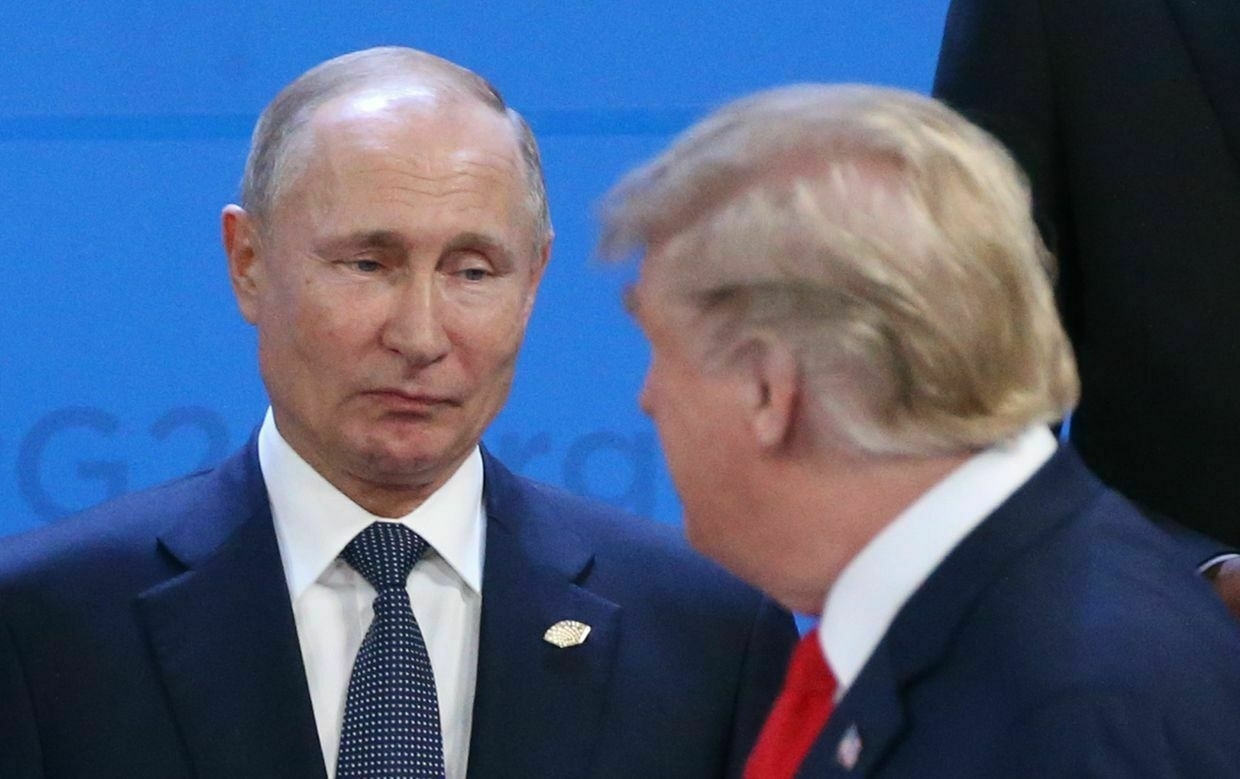
-
Kyiv supports energy sector ceasefire, expects military aid to continue, Zelensky says
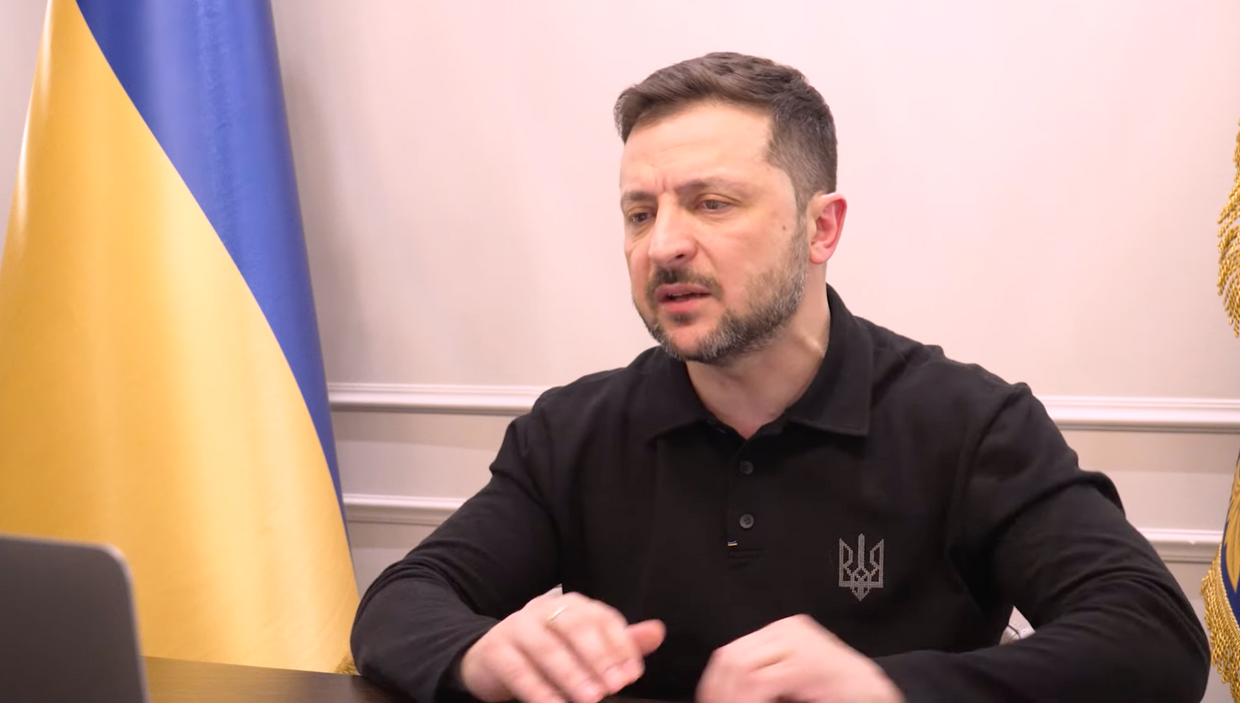
Ukraine is willing to agree to a 30-day pause on attacks on energy infrastructure, but needs more details of the agreement, President Volodymyr Zelensky told reporters in an online press briefing on March 18.
Zelensky’s remarks came after U.S. President Donald Trump and Russian President Vladimir Putin discussed a possible ceasefire in a phone call earlier that day. During the call, Putin said he would agree to a 30-day pause on energy infrastructure attacks.
“We will support such a proposal, but we’re very interested in the details,” Zelensky said via teleconference from Finland.
“What is the real proposal, what did the parties agree on? … After we get the details from the American president, from the American side, we will prepare our answer and the team will be ready for technical talks.”
Russia has been bombing Ukraine’s civilian energy infrastructure since 2022. In recent months, Moscow has intensified aerial campaigns with bombardments by swarms of Shahed drones a nightly occurrence. Zelensky noted during his briefing that there was an active air raid alert in Ukraine at that very moment.
Following Putin’s call with Trump, the Kremlin issued a statement demanding that Ukraine stop receiving all military aid and foreign intelligence as a “key condition for avoiding an escalation of the war."
Zelensky said he believed Ukraine’s allies would not accept these conditions and that he expected Kyiv to continue receiving foreign weapons.
“I think that partners, serious partners, will not go for it … This is not a game that is dictated exclusively by Putin,” Zelensky said.
“And I think that the aid will continue. We have the aid of the United States of America, we have the aid of our European colleagues. We are in constant contact. I am sure that there will be no betrayal from our partners.”
Zelensky reiterated Ukraine’s longstanding support for peace and its desire to end attacks against energy infrastructure, seaports, and food corridors.
“We will support any proposals that lead to a fair peace,” he said.
The president also confirmed that Ukraine and Russia will each exchange 175 prisoners on March 19.
Zelensky spoke to reporters virtually, as he and First Lady Olena Zelenska are currently in Helsinki, Finland for an official visit.
Ukraine war latest: Putin, Trump hold 1.5-hour call, discuss ceasefire in UkraineKey developments on March 18: * Trump-Putin call: Russia agrees to 30-day pause of energy infrastructure strikes * US announces another round of negotiations in Middle East on war in Ukraine * Ukrainian forces attempted to enter Belgorod Oblast, repelled by Russian forces, Russia claims * Ukrai…The Kyiv IndependentThe Kyiv Independent news desk
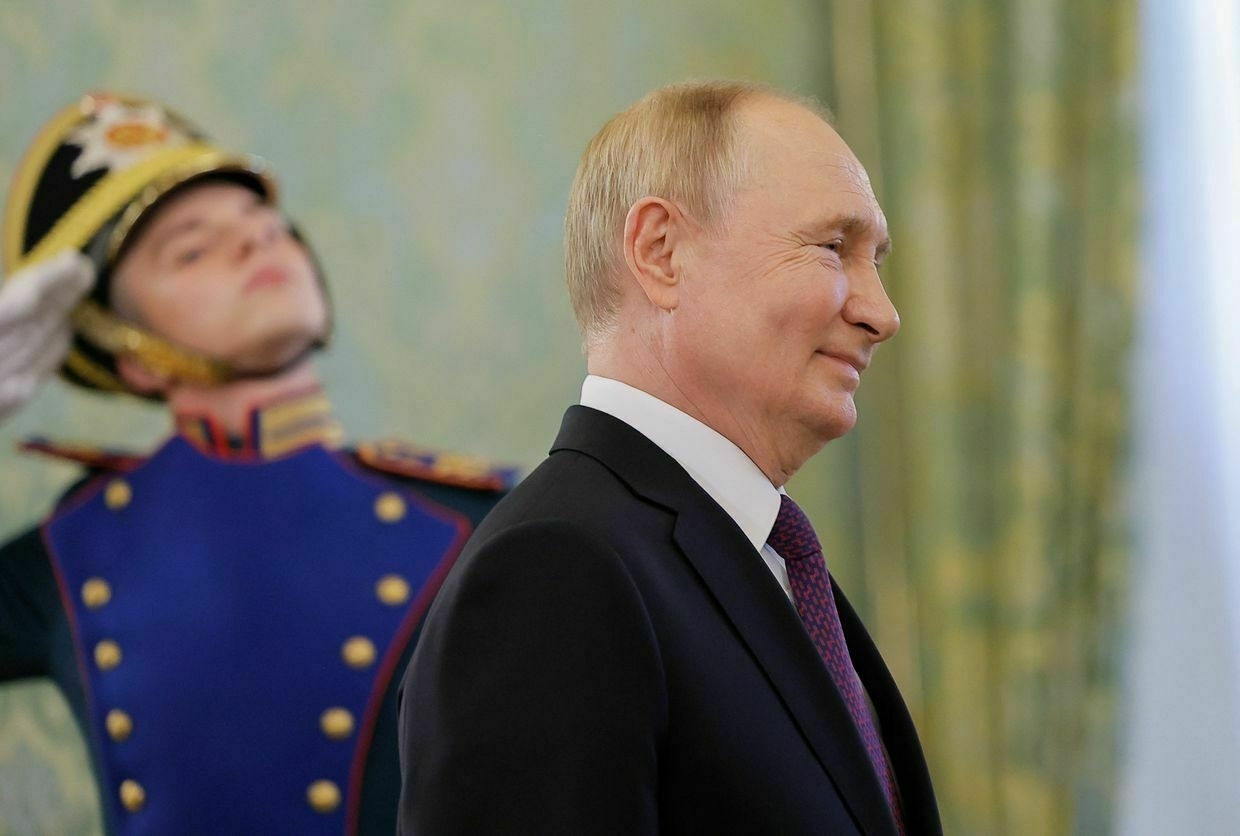
-
Trump, Putin open to 'mutually beneficial cooperation' in key sectors, Kremlin says
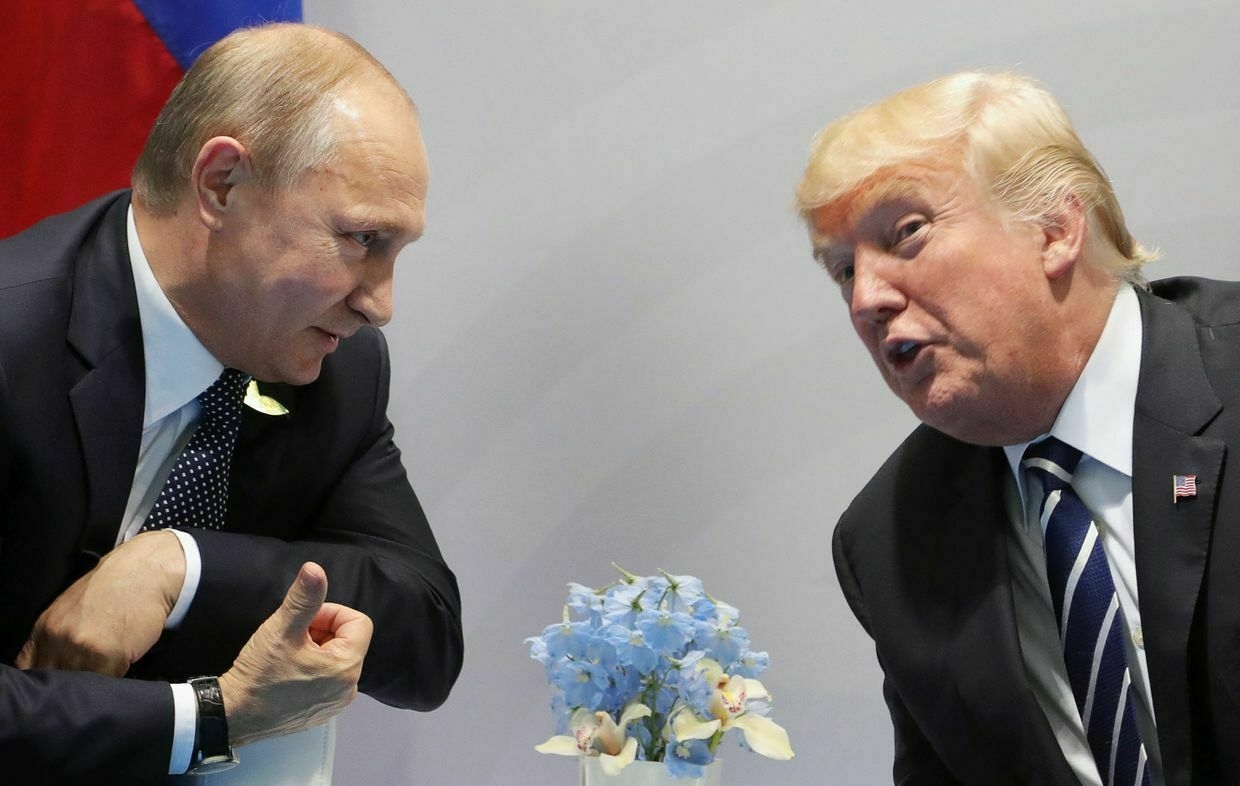
U.S. President Donald Trump and Russian President Vladimir Putin are developing “mutually beneficial cooperation” in a number of areas as part of efforts to normalize relations between the two countries, the Kremlin said in a readout of the leaders' phone call on March 18.
Earlier in the day, Trump and Putin spoke via phone for an hour and a half, discussing options for a ceasefire in Russia’s war against Ukraine and U.S.-Russian relations.
Trump and Putin share a “mutual interest” in normalizing relations between Washington and Moscow due to “the special responsibility of Russia and the United States for ensuring security and stability in the world,” the Kremlin’s statement reads.
“In this context, a wide range of areas in which our countries could establish interaction was considered. A number of ideas were discussed that are moving towards the development of mutually beneficial cooperation in the economy and energy sector.”
During the call, Putin agreed to pause Russia’s attacks on Ukrainian energy infrastructure facilities for 30 days — a significantly narrower proposal than Washington’s initial plan for a total 30-day ceasefire between Kyiv and Moscow.
Russia and the U.S. also during the call agreed to immediately begin another round of peace negotiations in the Middle East, focusing on the energy sector pause as well as technical negotiations for implementing a maritime ceasefire in the Black Sea.
The conversation was not solely focused on Russia’s full-scale invasion of Ukraine. The leaders discussed improving bilateral relations, and the potential for what the White House later described as “enormous economic deals.”
The Kremlin also claimed that Trump supported Putin’s idea to organize hockey matches between professional Russian and American players.
President Volodymyr Zelensky said he had not yet discussed the conversation with Trump, but that Kyiv supports a halt on energy infrastructure attacks. He also that Putin’s rejection of a full ceasefire reflects Russia’s desire to continue its offensives in multiple regions of Ukraine.
Ukraine war latest: Putin, Trump hold 1.5-hour call, discuss ceasefire in UkraineKey developments on March 18: * Trump-Putin call: Russia agrees to 30-day pause of energy infrastructure strikes * US announces another round of negotiations in Middle East on war in Ukraine * Ukrainian forces attempted to enter Belgorod Oblast, repelled by Russian forces, Russia claims * Ukrai…The Kyiv IndependentThe Kyiv Independent news desk
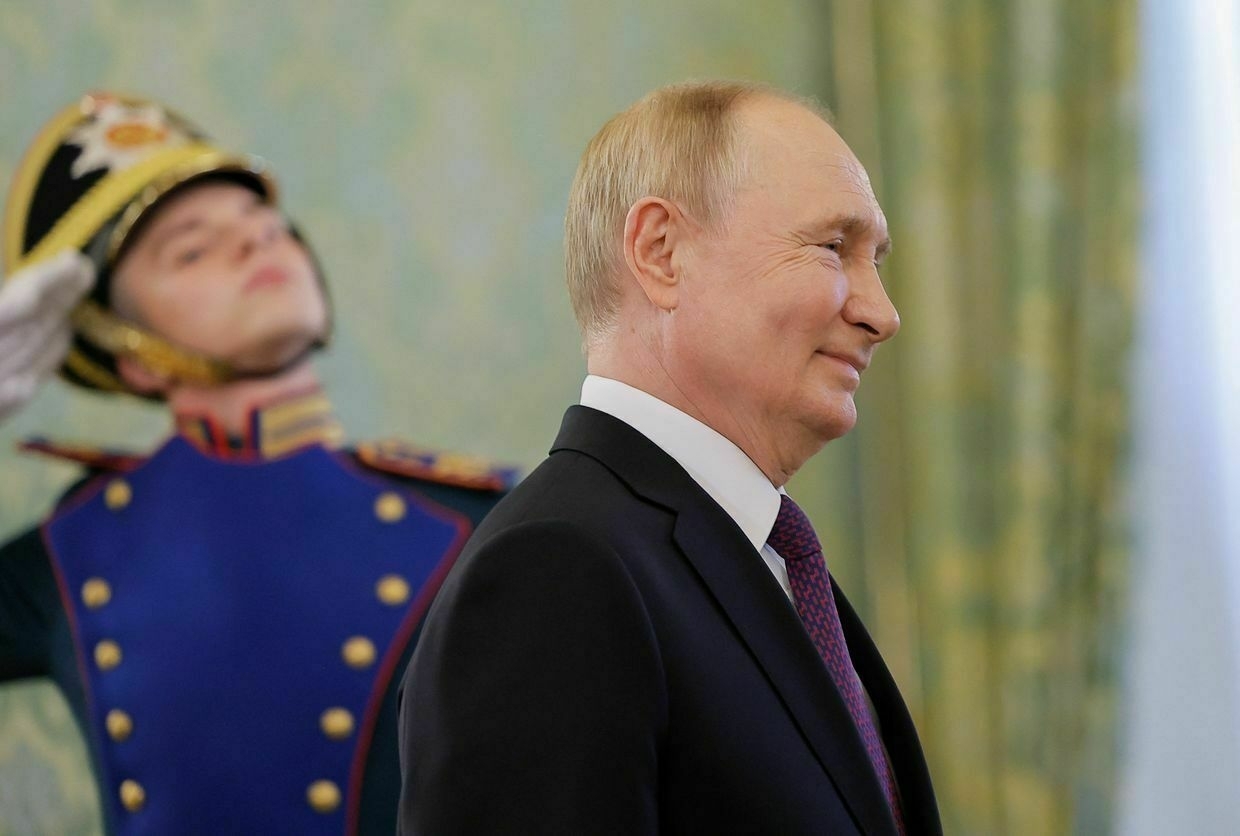
-
Ukraine war latest: Putin, Trump hold 1.5-hour call, discuss ceasefire in Ukraine
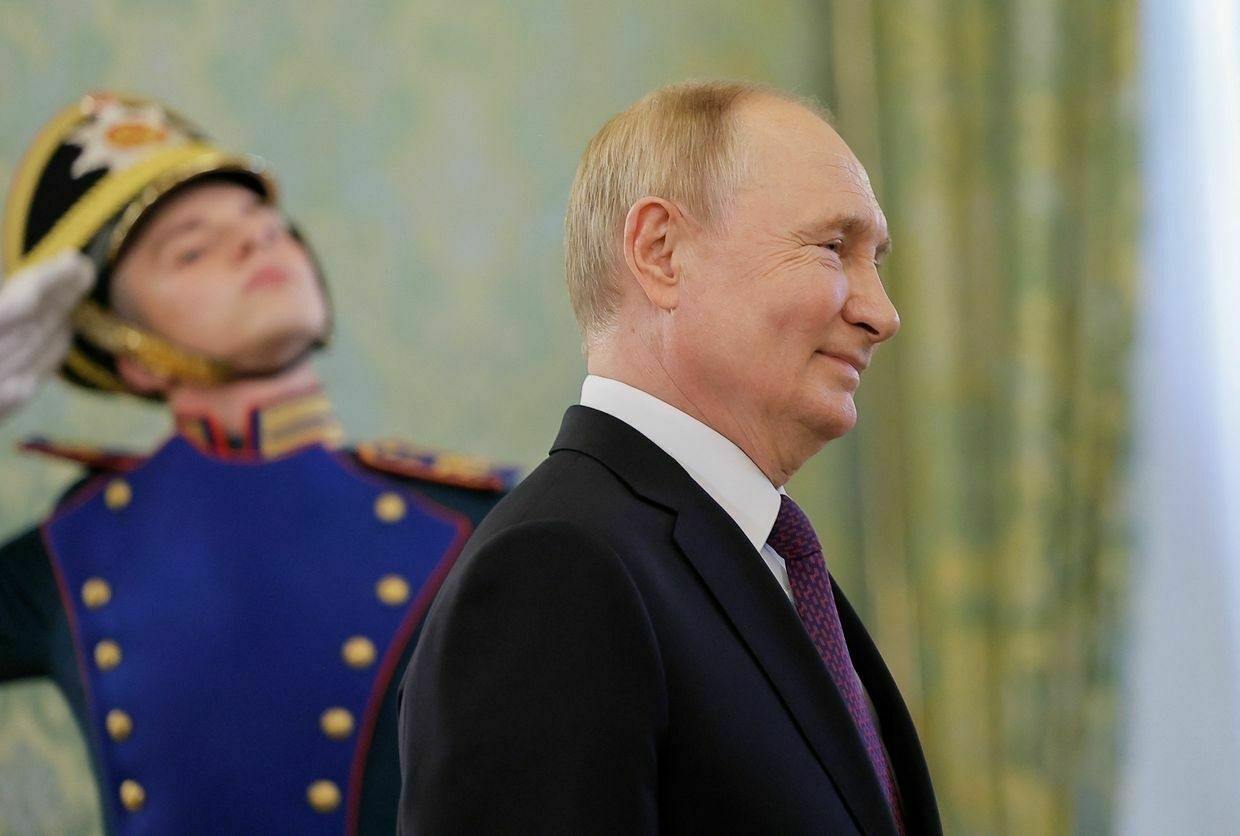
Key developments on March 18:
- Trump-Putin call: Russia agrees to 30-day pause of energy infrastructure strikes
- US announces another round of negotiations in Middle East on war in Ukraine
- Ukrainian forces attempted to enter Belgorod Oblast, repelled by Russian forces, Russia claims
- Ukraine withdraws from one front-line sector in Donetsk Oblast, commander says
- Russia sees US aid halt during Ukraine truce as its ‘minimum’ goal, Bloomberg reports
Russian President Vladimir Putin has agreed to a 30-day pause of energy infrastructure strikes during a call with U.S. President Donald Trump, according to a readout of the call issued by the Kremlin on March 18.
“During the conversation, Donald Trump proposed a mutual refusal of the parties to the conflict to strike for 30 days on energy infrastructure facilities,” the statement said.
"Vladimir Putin responded positively to this initiative and immediately gave the appropriate command to the Russian military."
Russia has been bombing Ukraine's civilian energy infrastructure since 2022 and has been steadily expanding its air campaigns in recent months, with bombardments by swarms of Shahed drones a nightly occurrence.
Ukraine has recently had some success in counterattacks. On the night of March 10, over 330 Ukrainian drones targeted Moscow. Subsequent strikes have hit Russia's fossil fuel infrastructure.
The Kremlin also said Putin "responded constructively to Donald Trump's idea of implementing a well-known initiative concerning the safety of navigation in the Black Sea."
"It was agreed to begin negotiations to further elaborate specific details of such an agreement," the statement added.
The statement followed a 1.5-hours phone call between Putin and Trump, during which they discussed ending the war in Ukraine and the U.S. proposal for a 30-day ceasefire to allow for further peace talks.
The Kremlin also demanded a complete cessation of foreign military aid and intelligence to Ukraine as a "key condition for avoiding an escalation of the war."
In addition to halting foreign military aid and intelligence, Russia also called for Ukraine to cease the mobilization and rearmament of its military.
‘Conditions for Ukraine’s surrender’ — Why Putin’s demands for ceasefire make no senseRussian President Vladimir Putin’s conditions for a ceasefire are unrealistic and tantamount to demanding that Ukraine disarm itself and surrender, analysts say. Putin said on March 13 that Russia was ready to agree to the U.S.-backed 30-day-long ceasefire in Ukraine but then followed by listing a…The Kyiv IndependentOleg Sukhov
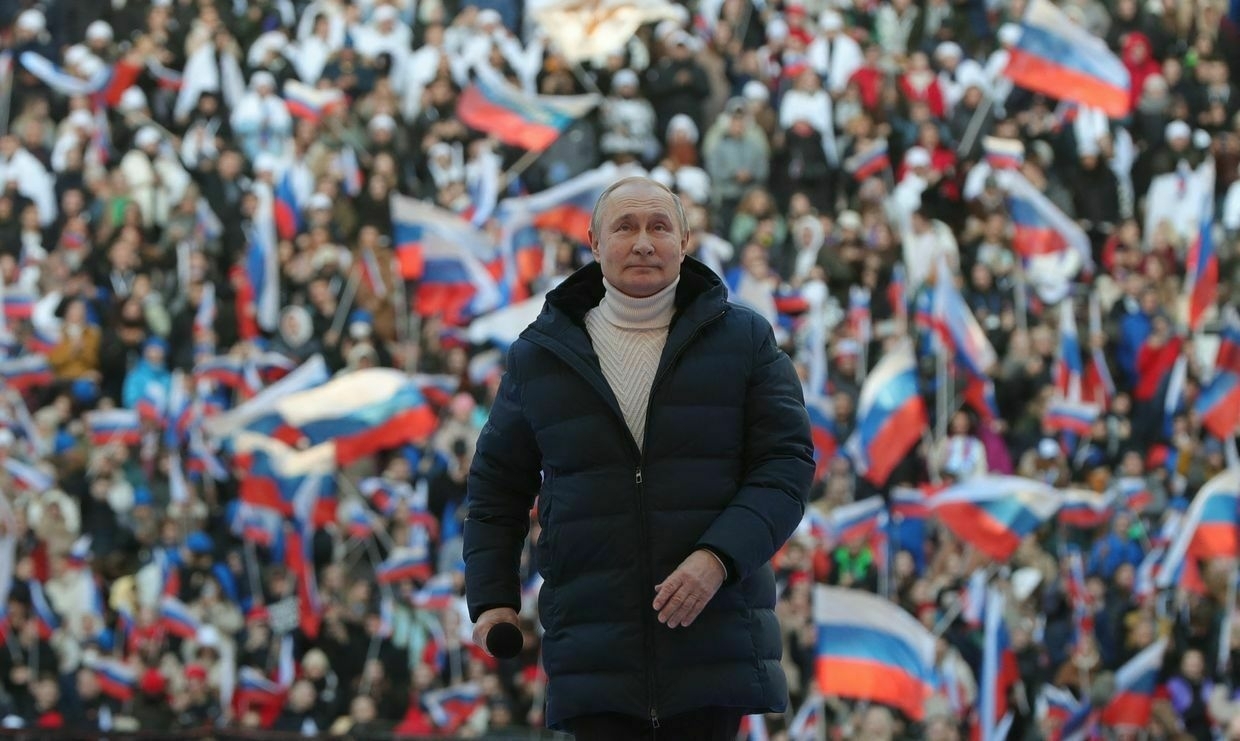
US announces another round of negotiations in Middle East on war in UkraineWashington announced on March 18 that another round of talks on the Russian war in Ukraine would "begin immediately" in the Middle East.
The announcement follows a call between U.S. President Donald Trump and Russian President Vladimir Putin, during which they discussed a 30-day ceasefire proposal and steps to end the war.
"This conflict should never have started and should have been ended long ago with sincere and good faith peace efforts," the White House's statement read.
Putin and Trump agreed that the war needs to end with "a lasting peace," and the first steps towards this will be an energy and infrastructure ceasefire and technical negotiations on implementing a maritime ceasefire in the Black Sea.
The negotiations on these matters will "begin immediately" in the Middle East, according to the statement.
Putin and Trump also agreed that there is a need for improved bilateral relations between the U.S. and Russia, saying this cooperation has "a huge upside," including "enormous economic deals and geopolitical stability when peace has been achieved."
Trump called the conversation with Putin "a very good and productive" one.
"Many elements of a contract for peace were discussed, including the fact that thousands of soldiers are being killed, and both President Putin and President Zelensky would like to see it end," the U.S. president wrote on Truth Social.
"That process is now in full force and effect, and we will, hopefully, for the sake of humanity, get the job done!" he added.
Trump also supported an idea proposed by Putin to organize US-Russia hockey matches.
"Donald Trump supported Vladimir Putin’s idea to organize hockey matches in the USA and Russia between Russian and American players playing in the NHL and KHL," the Kremlin said in a readout.
Who is to gain more from a ceasefire — Russia or Ukraine?U.S. President Donald Trump said on March 17 that he expects to hold a phone call with his Russian counterpart Vladimir Putin to discuss a U.S.-backed ceasefire proposal that Moscow has yet to agree to. Russia has declined to immediately accept the 30-day ceasefire proposal, with theThe Kyiv IndependentOleg Sukhov
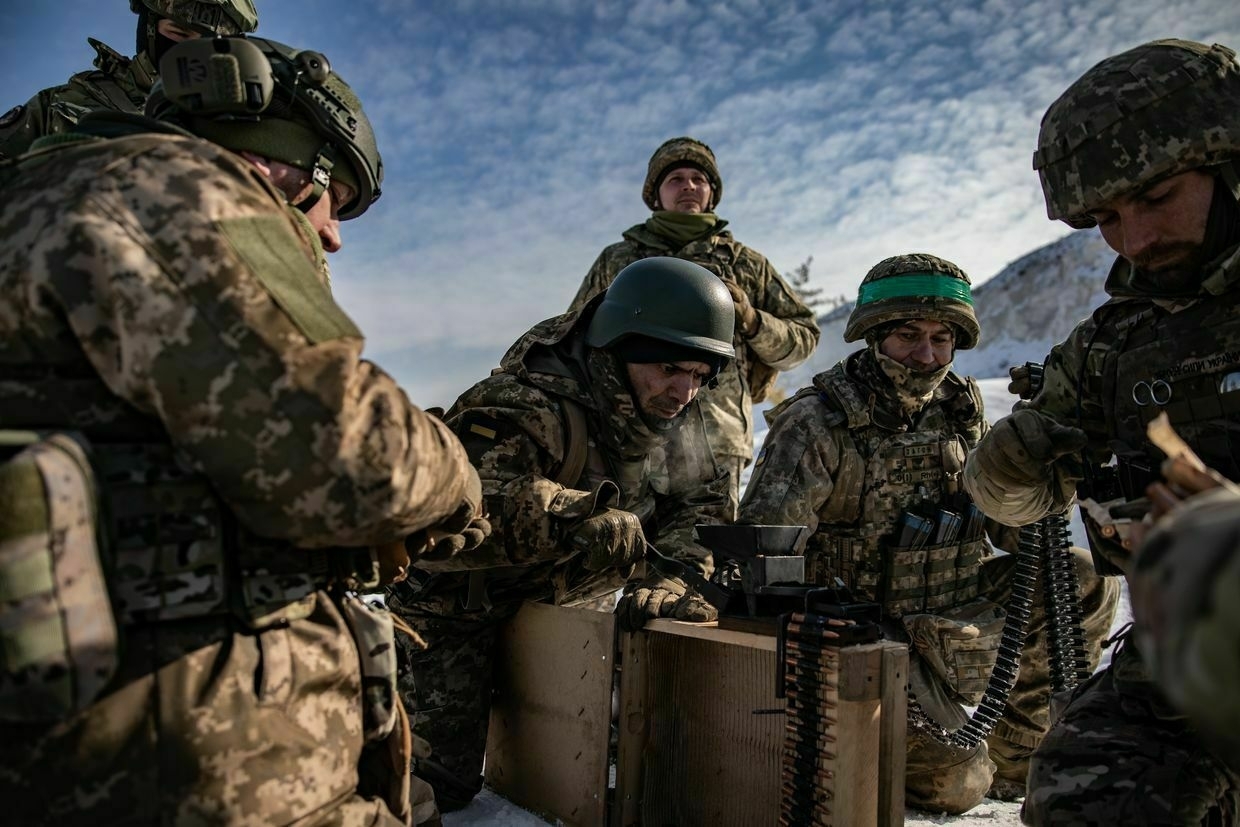
Ukrainian forces attempted to enter Belgorod Oblast, repelled by Russian forces, Russia claimsThe Russian Defense Ministry claimed on March 18 that the Ukrainian Armed Forces attempted to enter Russia's Belgorod Oblast but were repelled by the Russian military.
The news of an alleged Ukrainian offensive in Belgorod Oblast surfaced in Russian media just ahead of the phone call between Russian President Vladimir Putin and U.S. President Donald Trump.
Andrii Kovalenko, head of Ukraine's Center for Countering Disinformation, denied the claims.
Ukraine allegedly launched an offensive on Belgorod Oblast to "discredit Trump's peace initiatives," the Russian Defense Ministry claimed.
According to the ministry, Ukraine carried out five assaults toward the settlements of Demidovka and Prilesye.
"All attacks were repulsed by the actions of the state border protection units of the 'North' forces group, artillery fire and the use of FPV (first-person-view) drones. No crossing of the state border of the Russian Federation was allowed," the ministry's statement read.
Ukrainian authorities did not comment on the statement of the Russian Defense Ministry.
The Kyiv Independent could not verify these claims.
Belgorod Oblast borders Ukraine's Sumy, Kharkiv, and Luhansk oblasts and is regularly used by Russia to launch strikes against Ukrainian territory.
Belgorod Oblast authorities have repeatedly accused Ukraine of launching attacks against the region and Belgorod proper throughout the full-scale war.
Recently, multiple clashes have been reported in the region amid Ukraine's ongoing cross-border incursion focused on neighboring Kursk Oblast.
Ukraine withdraws from one front-line sector in Donetsk Oblast, commander saysUkrainian forces have withdrawn from one front-line sector in Donetsk Oblast to preserve troops and improve defensive operations, Lieutenant General Serhii Naiev, the commander of a tactical group in the region, reported on March 18.
"This allowed us not only to save our soldiers but also to improve our defense. (Russia) is suffering losses, and we can act more effectively," Naiev wrote on Facebook. It remains unclear which section of the front line the commander was referring to.
Naiev, the former commander of Ukraine's Joint Forces, noted that his leadership of the tactical group in Donetsk Oblast has now entered its second month.
The general emphasized that over the past month, coordinated efforts by scouts, drone operators, artillery, mortar units, tanks, and infantry have destroyed more than 30 Russian armored vehicles and taken out 2,000 Russian soldiers.
“This has significantly reduced the number of Russian attacks in our direction,” he said.
According to Interfax Ukraine's undisclosed source, Naiev has been appointed to command the Velyka Novosilka tactical group. The occupied village of Velyka Novosilka lies some 20 kilometers (12 miles) east of the administrative border between the Zaporizhzhia and Donetsk oblasts.
The withdrawal was carried out in February and concerned Ukrainian units in the area of the villages Dachne, Zelenivka, and Andriivka north of Velyka Novosilka, Ukrainska Pravda's undisclosed sources claimed. Kyiv's forces stationed there pulled back to avoid encirclement in the so-called Kurakhove pocket, according to the outlet.
The Kyiv Independent could not verify the claims. A Ukrainian military spokesperson has declined to comment.
The Ukrainian military reported that Russia has stepped up attacks in the southern Zaporizhzhia Oblast over the past few weeks but denied Russian claims of capturing the village of Stepove.
Throughout the fall of 2024, Russian forces made operational gains in Donetsk Oblast, including areas near Toretsk and Chasiv Yar. Fighting remains intense in the eastern region, and Russian troops continue to advance, albeit slowly, this year.
Russia sees US aid halt during Ukraine truce as its 'minimum' goal, Bloomberg reportsThe Kremlin wants all Western arms supplies to Ukraine to stop during a proposed truce but prioritizes a pause on U.S. arms as its "minimum aim," Bloomberg reported on March 18, citing two undisclosed sources in Moscow.
Russian President Vladimir Putin said on March 13 that Moscow is open to a 30-day ceasefire, agreed upon by the U.S. and Ukraine, but only if Kyiv stops receiving foreign arms and conscripting and training its forces.
These conditions have raised concerns that Ukraine would be left vulnerable to renewed Russian offensives as no such limitations are being proposed in regard to Russia's Armed Forces.
Bloomberg's sources confirmed that the halt on Western arms supplies — or at the very least, U.S. assistance — remains as Putin's condition.
Putin is scheduled to call with U.S. President Donald Trump later on March 18 between 4 and 6 p.m. Moscow time, Kremlin spokesperson Dmitry Peskov confirmed. The two leaders are expected to discuss the proposed ceasefire plan.
The U.S. temporarily halted military supplies for Ukraine earlier this month before restarting it after Kyiv agreed to the truce plan during talks in Jeddah on March 11.
The ongoing supplies are covered by the presidential drawdown authority (PDA) packages approved by former President Joe Biden, who made the U.S. into Ukraine's leading military donor.
Trump has not approved any new packages and has made it clear he does not seek a prolonged U.S. engagement in Ukraine.
The EU reportedly has no intention of halting military aid to Ukraine during the proposed truce. European countries are seeking ways to bolster support for Kyiv as continued backing from the U.S. grows increasingly uncertain.
Note from the author:
Ukraine War Latest is put together by the Kyiv Independent news desk team, who keep you informed 24 hours a day, seven days a week. If you value our work and want to ensure we have the resources to continue, join the Kyiv Independent community.
-
Zelensky confirms prisoner exchange, says he has not yet spoken with Trump after Putin call
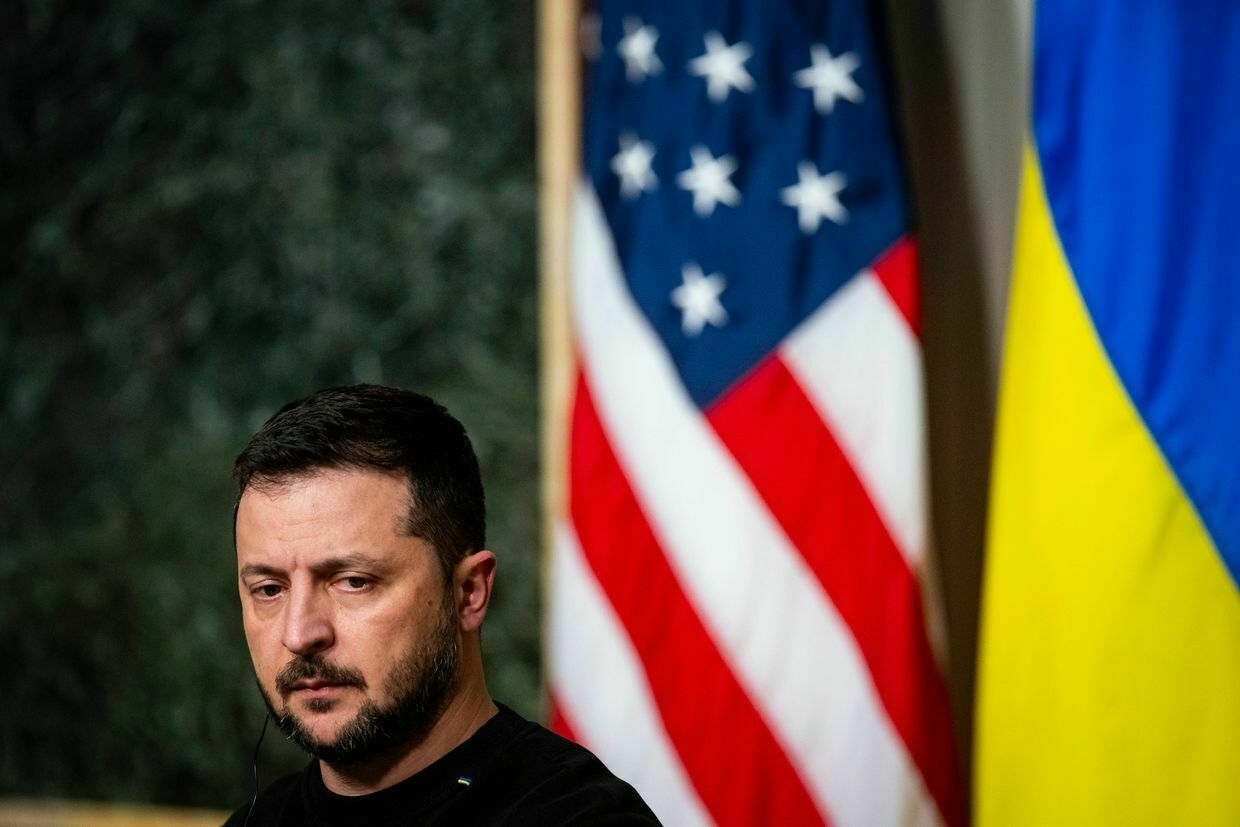
Editor’s Note: This is a developing story and is being updated.
President Volodymyr Zelensky has not spoken with U.S. President Donald Trump since his White House phone call with Russian President Vladimir Putin earlier on March 18, the Ukrainian news outlet Suspilne reported.
Trump and Putin held a 1.5-hour phone call earlier in the day, during which Putin agreed to a 30-day pause on energy infrastructure attacks while rejecting Washington’s proposal for a complete cessation of hostilities.
Zelensky told reporters on March 18 that he had not yet spoken with Trump about his conversation with Putin, but that he expected to discuss the matter in detail soon. He also said Kyiv supports a halt on energy infrastructure attacks in principle.
“I expect that we will have a conversation with President Trump, we will understand the details,” Zelensky said.
“We have always supported the position of not attacking the energy sector with any weapons.”
During the conversation with Trump, Putin said that on March 19, Ukraine and Russia would each exchange 175 prisoners. He also said Moscow pledged to return more than 23 seriously wounded Ukrainian soldiers.
Zelensky confirmed that a prisoner swap would take place on March 19, saying it was a pre-planned exchange.
Zelensky also said that Putin’s rejection of Washington’s 30-day ceasefire plan signaled the Kremlin’s desire to “issue ultimatums” rather than negotiate peace in good faith.
“I would really like President Trump to hear and see what Putin wants,” Zelensky said.
“Putin wants to make several offensives in the Zaporizhzhia direction, in the east, in the Kharkiv and Sumy directions. Why? In order to put maximum pressure on Ukraine and then issue ultimatums from a position of strength."
Following Putin’s talk with Trump, the Kremlin issued a statement demanding a complete halt on all foreign military aid and intelligence to Ukraine, calling it a “key condition for avoiding an escalation of the war."
Trump-Putin call: Russia agrees to 30-day pause of energy infrastructure strikes“Vladimir Putin responded positively to this initiative and immediately gave the appropriate command to the Russian military,” the Kremlin said.The Kyiv IndependentThe Kyiv Independent news desk
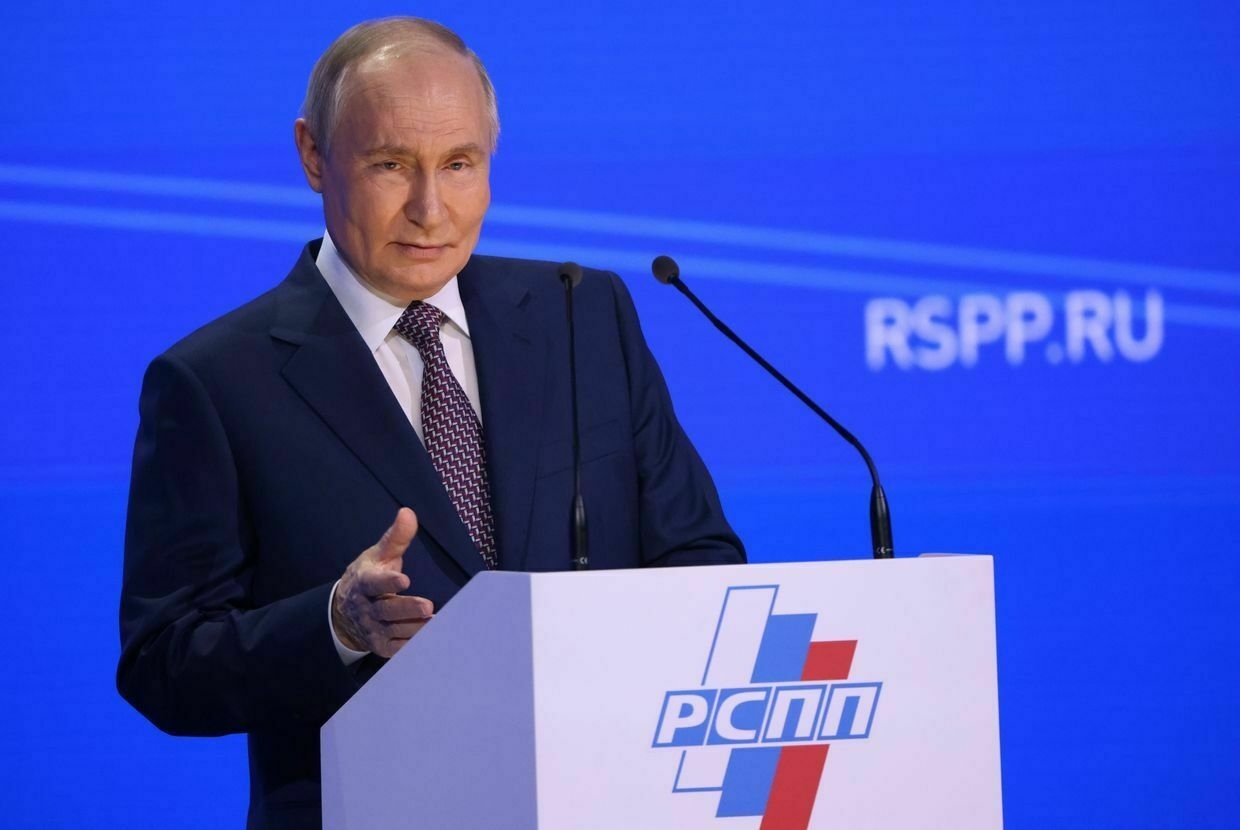
-
Ukrainian forces attempted to enter Belgorod Oblast, repelled by Russian forces, Russia claims
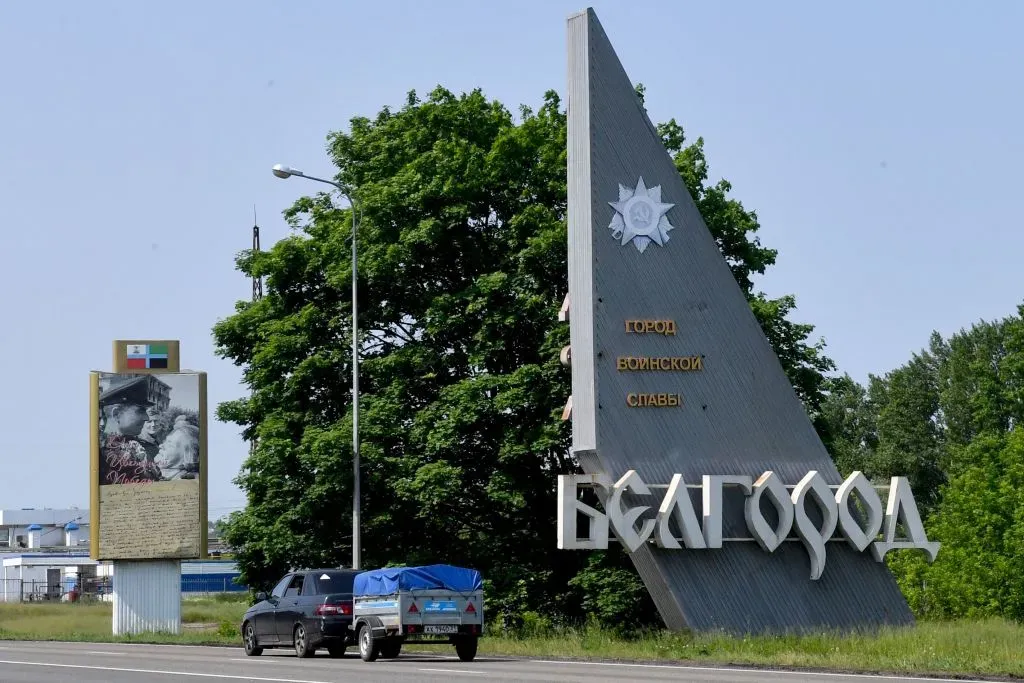
The Russian Defense Ministry claimed on March 18 that the Ukrainian Armed Forces attempted to enter Russia’s Belgorod Oblast but were repelled by the Russian military.
The news of an alleged Ukrainian offensive in Belgorod Oblast surfaced in Russian media just ahead of the phone call between Russian President Vladimir Putin and U.S. President Donald Trump.
Andrii Kovalenko, head of Ukraine’s Center for Countering Disinformation, denied the claims.
Ukraine allegedly launched an offensive on Belgorod Oblast to “discredit Trump’s peace initiatives,” the Russian Defense Ministry claimed.
According to the ministry, Ukraine carried out five assaults toward the settlements of Demidovka and Prilesye.
“All attacks were repulsed by the actions of the state border protection units of the ‘North’ forces group, artillery fire and the use of FPV (first-person-view) drones. No crossing of the state border of the Russian Federation was allowed,” the ministry’s statement read.
Ukrainian authorities did not comment on the statement of the Russian Defense Ministry.
The Kyiv Independent could not verify these claims.
Belgorod Oblast borders Ukraine’s Sumy, Kharkiv, and Luhansk oblasts and is regularly used by Russia to launch strikes against Ukrainian territory.
Belgorod Oblast authorities have repeatedly accused Ukraine of launching attacks against the region and Belgorod proper throughout the full-scale war.
Recently, multiple clashes have been reported in the region amid Ukraine’s ongoing cross-border incursion focused on neighboring Kursk Oblast.
Who is to gain more from a ceasefire — Russia or Ukraine?U.S. President Donald Trump said on March 17 that he expects to hold a phone call with his Russian counterpart Vladimir Putin to discuss a U.S.-backed ceasefire proposal that Moscow has yet to agree to. Russia has declined to immediately accept the 30-day ceasefire proposal, with theThe Kyiv IndependentOleg Sukhov
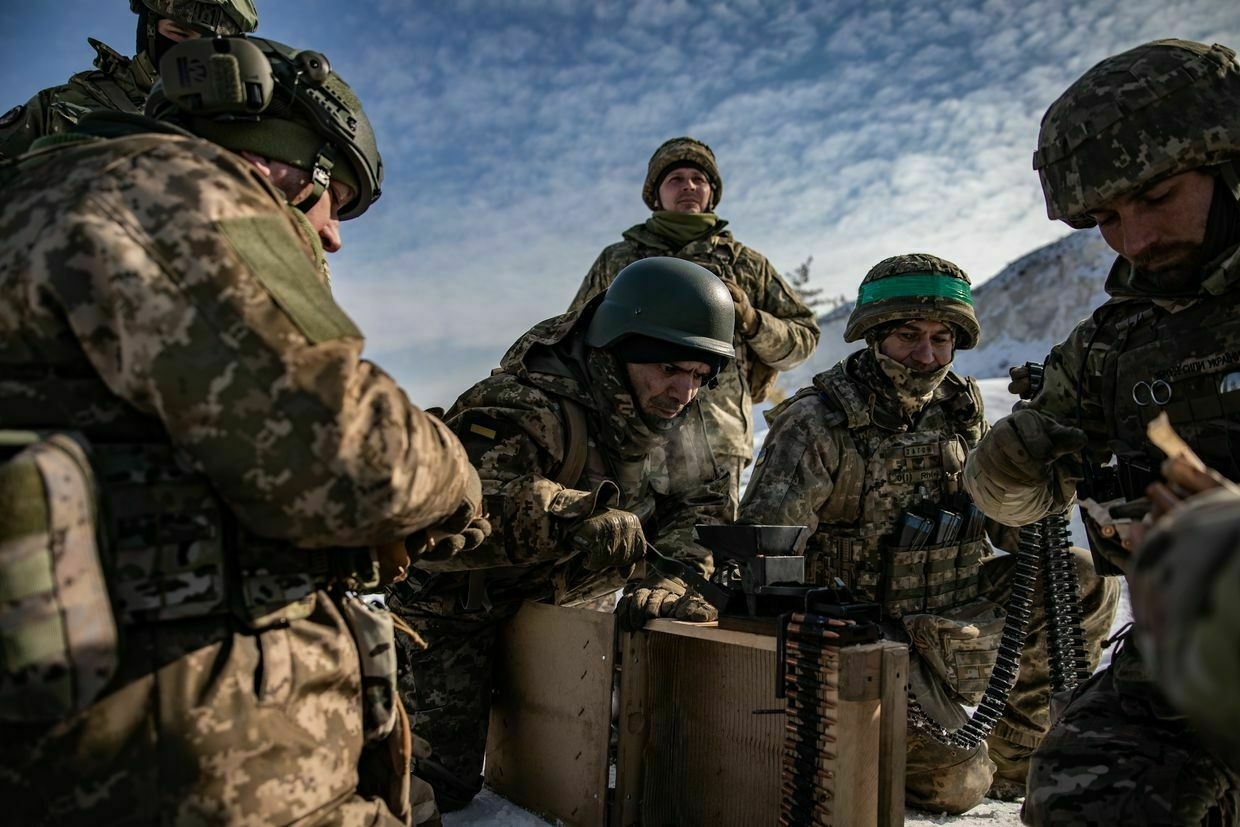
-
Trump-Putin Phone Call: The World Changes for Good?
-
US announces another round of negotiations in Middle East on war in Ukraine
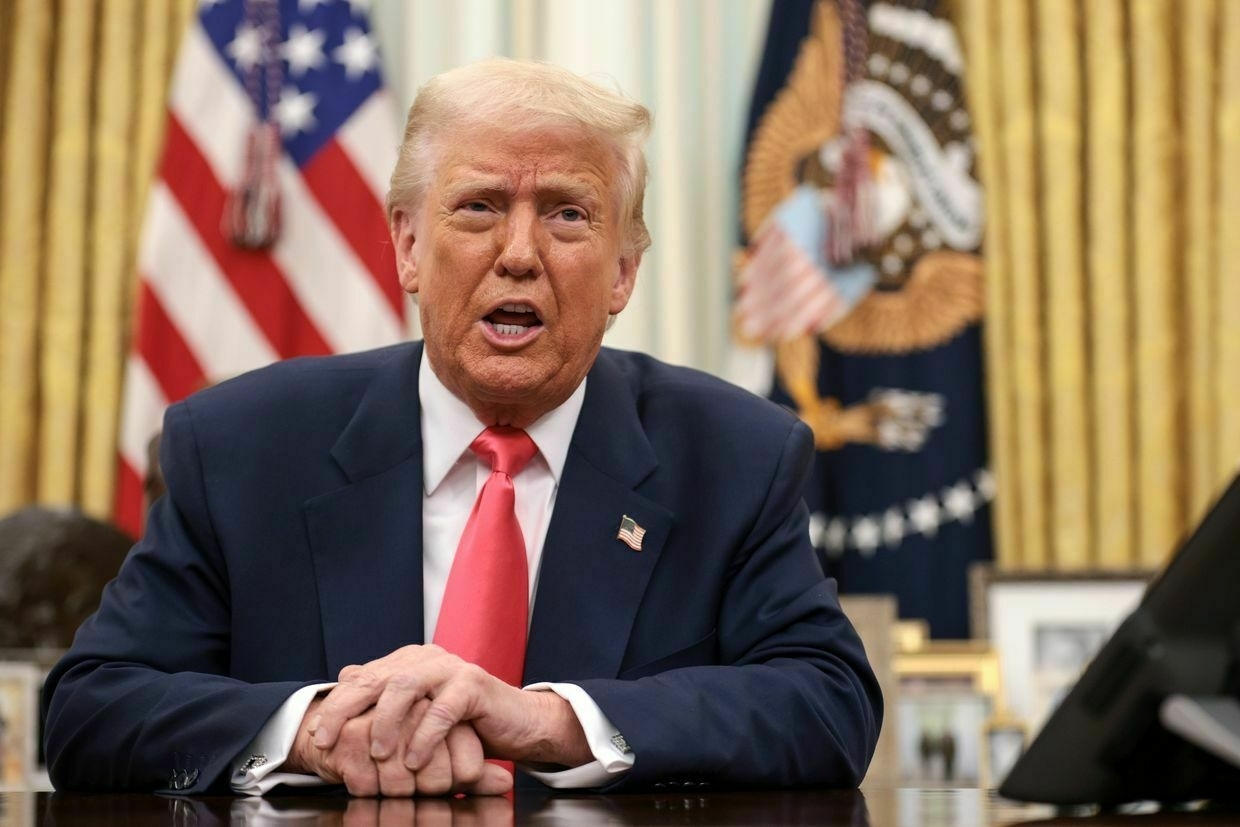
Washington announced on March 18 that another round of talks on the Russian war in Ukraine would “begin immediately” in the Middle East.
The announcement follows a call between U.S. President Donald Trump and Russian President Vladimir Putin, during which they discussed a 30-day ceasefire proposal and steps to end the war.
“This conflict should never have started and should have been ended long ago with sincere and good faith peace efforts,” the White House’s statement read.
Putin and Trump agreed that the war needs to end with “a lasting peace,” and the first steps towards this will be an energy and infrastructure ceasefire and technical negotiations on implementing a maritime ceasefire in the Black Sea.
The negotiations on these matters will “begin immediately” in the Middle East, according to the statement.
Putin and Trump also agreed that there is a need for improved bilateral relations between the U.S. and Russia, saying this cooperation has “a huge upside,” including “enormous economic deals and geopolitical stability when peace has been achieved."
Trump called the conversation with Putin “a very good and productive” one.
“Many elements of a contract for peace were discussed, including the fact that thousands of soldiers are being killed, and both President Putin and President Zelensky would like to see it end,” the U.S. president wrote on Truth Social.
“That process is now in full force and effect, and we will, hopefully, for the sake of humanity, get the job done!” he added.
Trump also supported an idea proposed by Putin to organize US-Russia hockey matches.
“Donald Trump supported Vladimir Putin’s idea to organize hockey matches in the USA and Russia between Russian and American players playing in the NHL and KHL,” the Kremlin said in a readout.
Following the call, Putin has agreed to a 30-day pause on energy infrastructure strikes.
However, the Kremlin demanded a complete cessation of foreign military aid and intelligence to Ukraine as a “key condition for avoiding an escalation of the war."
In addition to halting foreign military aid and intelligence, Russia also called for Ukraine to cease the mobilization and rearmament of its military.
Who is to gain more from a ceasefire — Russia or Ukraine?U.S. President Donald Trump said on March 17 that he expects to hold a phone call with his Russian counterpart Vladimir Putin to discuss a U.S.-backed ceasefire proposal that Moscow has yet to agree to. Russia has declined to immediately accept the 30-day ceasefire proposal, with theThe Kyiv IndependentOleg Sukhov
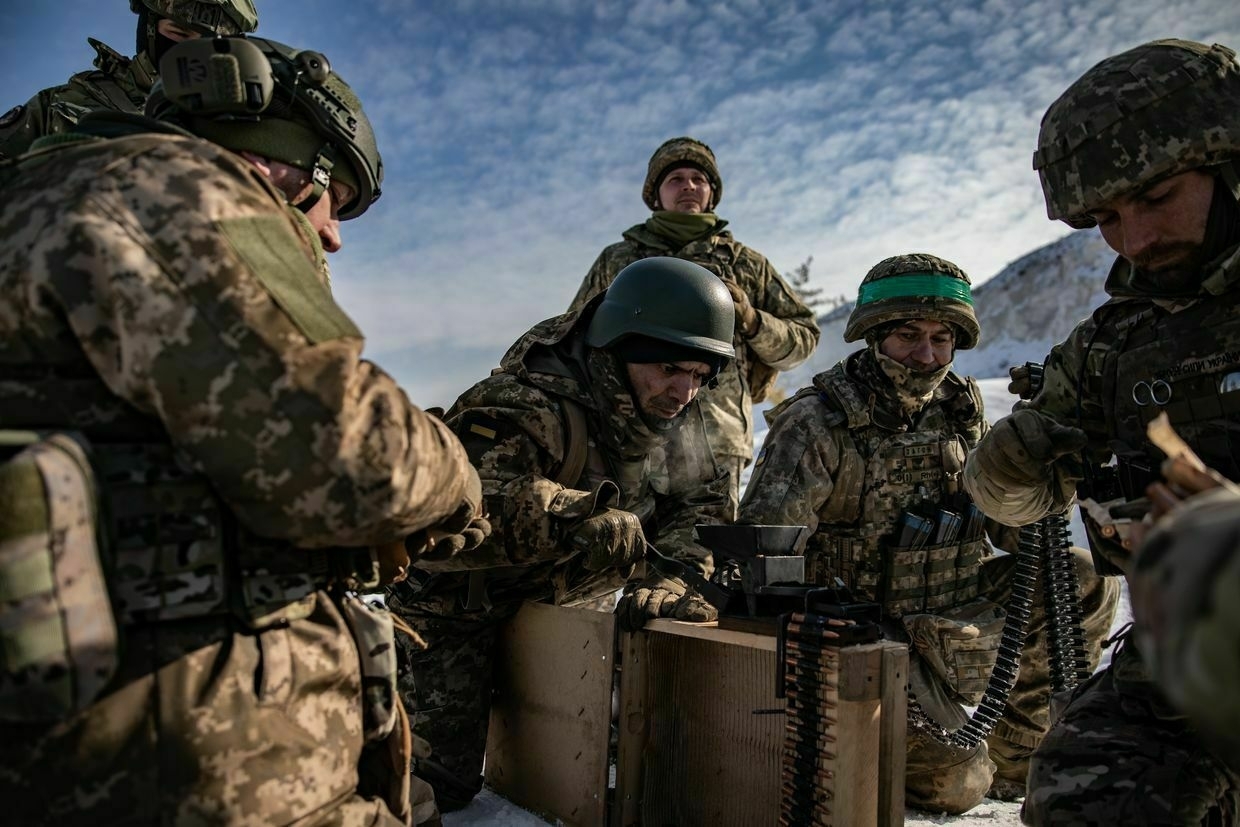
-
Trump-Putin call: Russia agrees to 30-day pause of energy infrastructure strikes
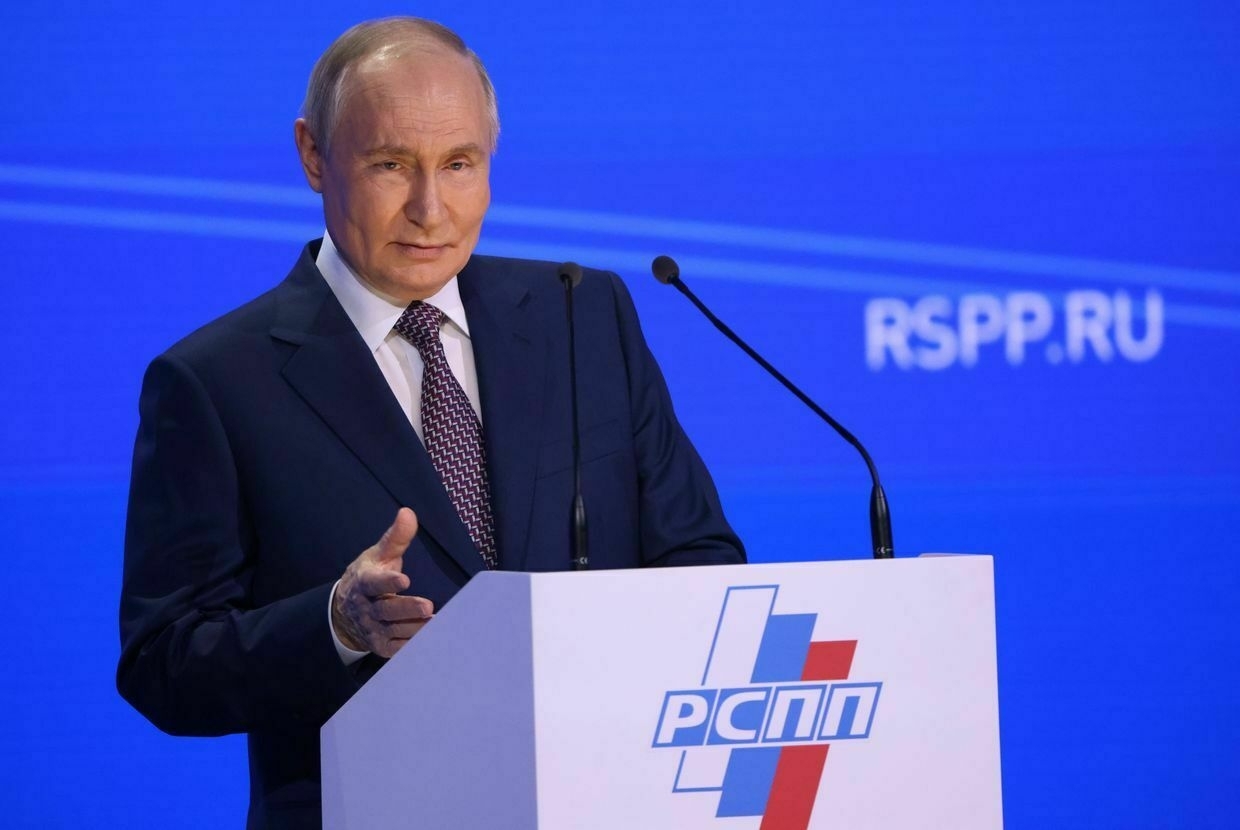
This is a developing story and is being updated.
Russian President Vladimir Putin has agreed to a 30-day pause of energy infrastructure strikes during a call with U.S. President Donald Trump, according to a readout of the call issued by the Kremlin on March 18.
“During the conversation, Donald Trump proposed a mutual refusal of the parties to the conflict to strike for 30 days on energy infrastructure facilities,” the statement said.
"Vladimir Putin responded positively to this initiative and immediately gave the appropriate command to the Russian military."
Russia has been bombing Ukraine’s civilian energy infrastructure since 2022 and has been steadily expanding its air campaigns in recent months, with bombardments by swarms of Shahed drones a nightly occurrence.
Ukraine has recently had some success in counterattacks. On the night of March 10, over 330 Ukrainian drones targeted Moscow. Subsequent strikes have hit Russia’s fossil fuel infrastructure.
The Kremlin also said Putin “responded constructively to Donald Trump’s idea of implementing a well-known initiative concerning the safety of navigation in the Black Sea."
“It was agreed to begin negotiations to further elaborate specific details of such an agreement,” the statement added.
The statement followed a 1.5-hours phone call between Putin and Trump, during which they discussed ending the war in Ukraine and the U.S. proposal for a 30-day ceasefire to allow for further peace talks.
The Kremlin also demanded a complete cessation of foreign military aid and intelligence to Ukraine as a “key condition for avoiding an escalation of the war.”
In addition to halting foreign military aid and intelligence, Russia also called for Ukraine to cease the mobilization and rearmament of its military.
‘Talk about an invasion is everywhere’ — How Lithuania is preparing for war with RussiaThroughout Russia’s full-scale invasion of Ukraine, repeated and escalating warnings of the potential for a wider war have only raised fears in the Baltic states that they could be next in the crosshairs of the Kremlin. Talk about a potential Russian invasion is “very common at parties, gatherings,…The Kyiv IndependentYuliia Taradiuk
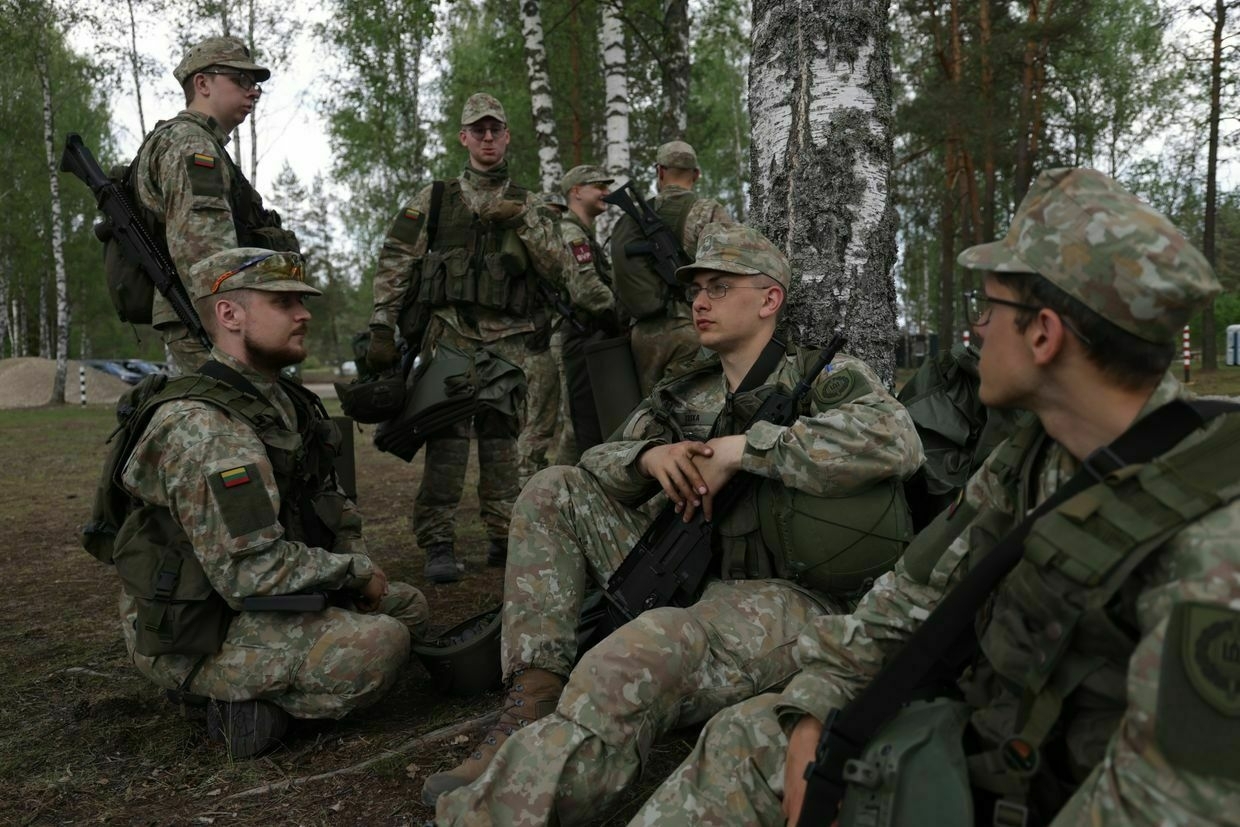
-
Kremlin demands halt to foreign military aid, intelligence to Ukraine as condition for avoiding war escalation
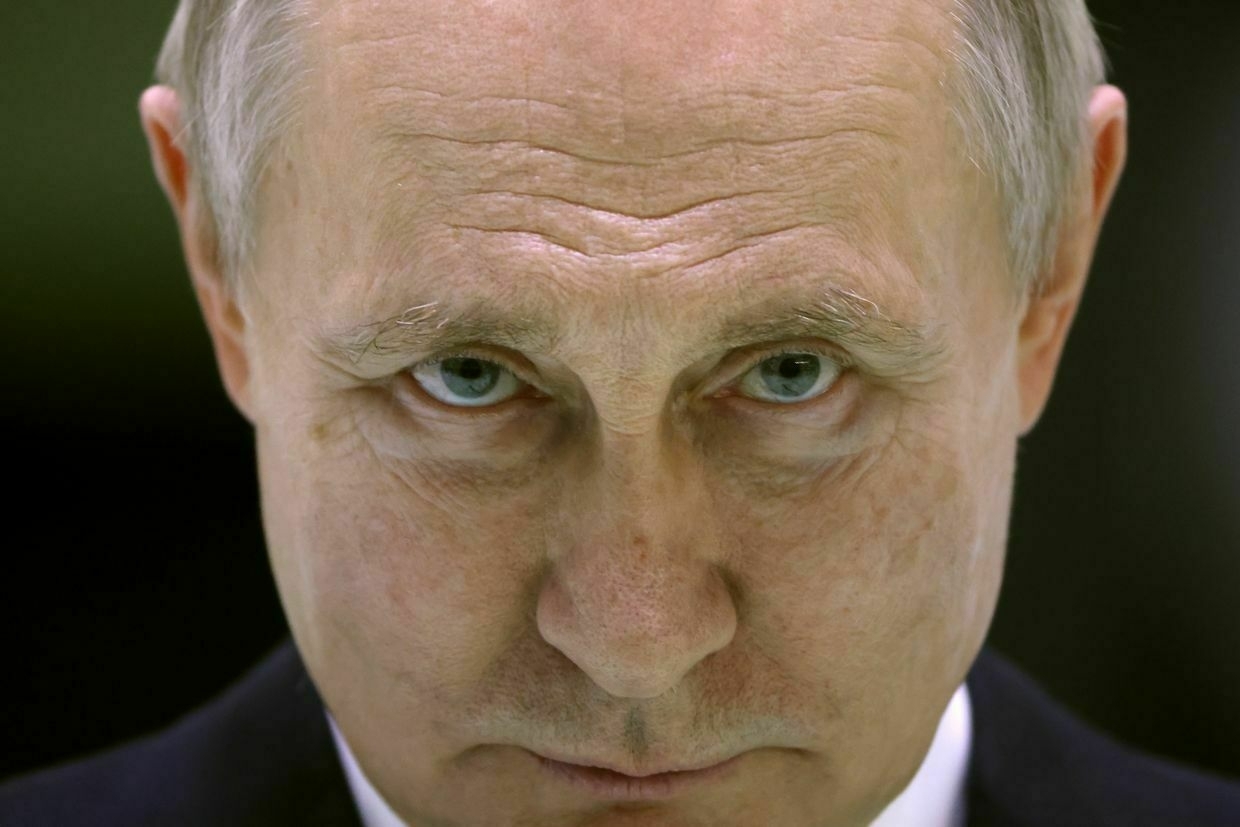
The Kremlin has demanded a complete cessation of foreign military aid and intelligence to Ukraine as a “key condition for avoiding an escalation of the war,” according to a statement released on March 18.
The statement follows a 1.5-hours phone call between Russian President Vladimir Putin and U.S. President Donald Trump, during which they discussed ending the war in Ukraine and the U.S. proposal for a 30-day ceasefire to allow for further peace talks.
In addition to halting foreign military aid and intelligence, the Kremlin also called for Ukraine to cease the mobilization and rearmament of its military.
During the call, Putin announced that on March 19, Ukraine and Russia would conduct a 175-for-175 prisoner exchange. Moscow also pledged to release more than 23 seriously wounded Ukrainian soldiers to Kyiv.
The two parties agreed to set up Russian and American expert groups to “resolve the war bilaterally."
Putin also praised Trump for “striving to promote the noble goal of ending hostilities and the loss of life."
Ahead of the call, Trump spoke with U.K. Prime Minister Keir Starmer, who told him that Ukraine must be in the “strongest possible position” to secure a “just and lasting peace,” Sky News reported.
The phone discussion follows the U.S. and Ukraine agreeing on a 30-day ceasefire during talks in Jeddah on March 11, provided that Russia abides by it. Washington subsequently resumed military and intelligence support for Ukraine after suspending it the previous week.
To discuss the proposal, U.S. Special Representative Steve Witkoff traveled to Moscow on March 13.
Later that day, Putin signaled that Russia was also open to the ceasefire but demanded guarantees that Ukraine would not mobilize troops, conduct training, or receive military assistance during the truce, potentially leaving Kyiv vulnerable to renewed Russian offensives.
After taking office in January, Trump has initiated direct negotiations with Russia, marking the first such talks between the U.S. and Moscow since the start of Russia’s full-scale invasion of Ukraine in 2022.
American and Russian delegations met in Riyadh on Feb. 18 and in Istanbul on Feb. 27 to discuss a path toward ending the war and restoring diplomatic ties between the U.S. and Russia.
Trump has made securing a swift settlement to the war a priority, but his administration’s approach has sparked fears that Washington is sidelining Kyiv and its European partners.
The U.S. president previously held a call with Putin on Feb. 12, after which he announced that negotiations to end the war would begin “immediately."
A possible in-person meeting between the two presidents will depend on whether “we can make any progress” on ending the war, U.S. Secretary of State Marco Rubio said on Feb. 20.
Germany’s military rebirth is Europe’s best bet against PutinWhen Russian President Vladimir Putin launched his full-scale invasion of Ukraine in February 2022, he knew that he was upending Europe’s security order. But this was more of a tactical gambit than a calculated strategy, and he could not have predicted what would follow. Though U.S. President DonaldThe Kyiv IndependentShlomo Ben-Ami
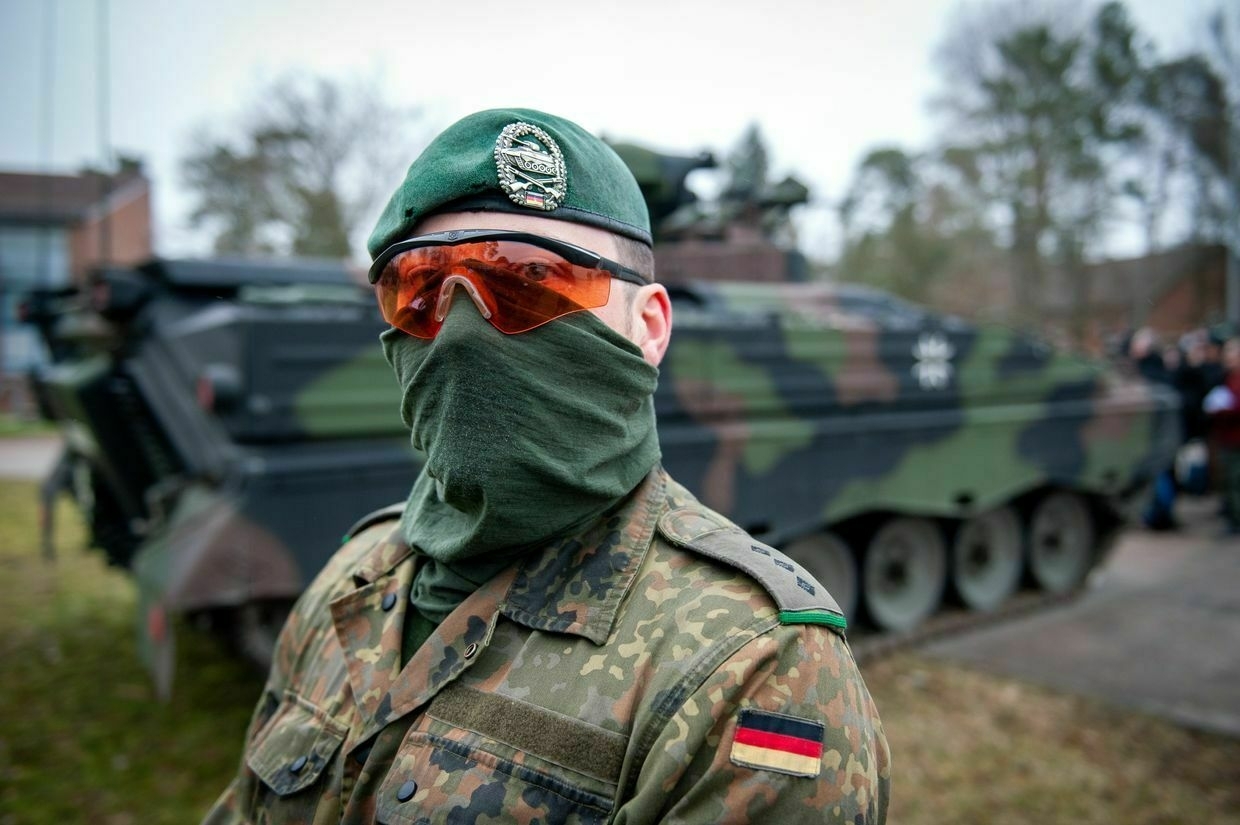
-
Trump-Putin call lasts 1.5 hours, NBC reports
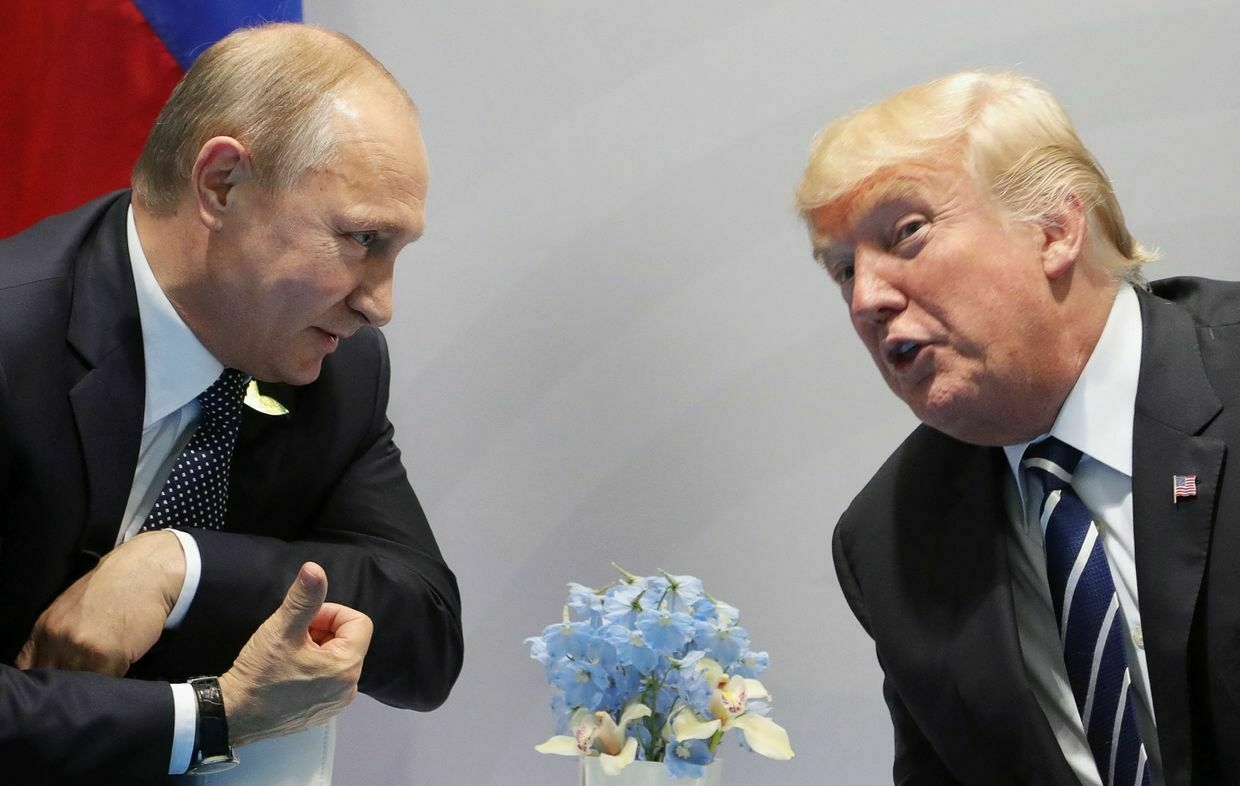
Editor’s note: This is a developing story and is being updated.
U.S. President Donald Trump has completed a 1.5-hour phone call with Russian President Vladimir Putin, NBC reported on March 18, citing an unnamed White House source.
The call follows U.S.-led negotiations in Saudi Arabia, where Washington proposed a 30-day ceasefire between Russia and Ukraine.
The call between the presidents began at 10 a.m. EDT and lasted “over an hour and a half,” according to NBC.
Putin-Trump call went “very well,” CNN reported, citing an unnamed Russian source with knowledge of the call.
White House Deputy Chief of Staff Dan Scavino also said earlier the call was “going well."
Who is to gain more from a ceasefire — Russia or Ukraine?U.S. President Donald Trump said on March 17 that he expects to hold a phone call with his Russian counterpart Vladimir Putin to discuss a U.S.-backed ceasefire proposal that Moscow has yet to agree to. Russia has declined to immediately accept the 30-day ceasefire proposal, with theThe Kyiv IndependentOleg Sukhov
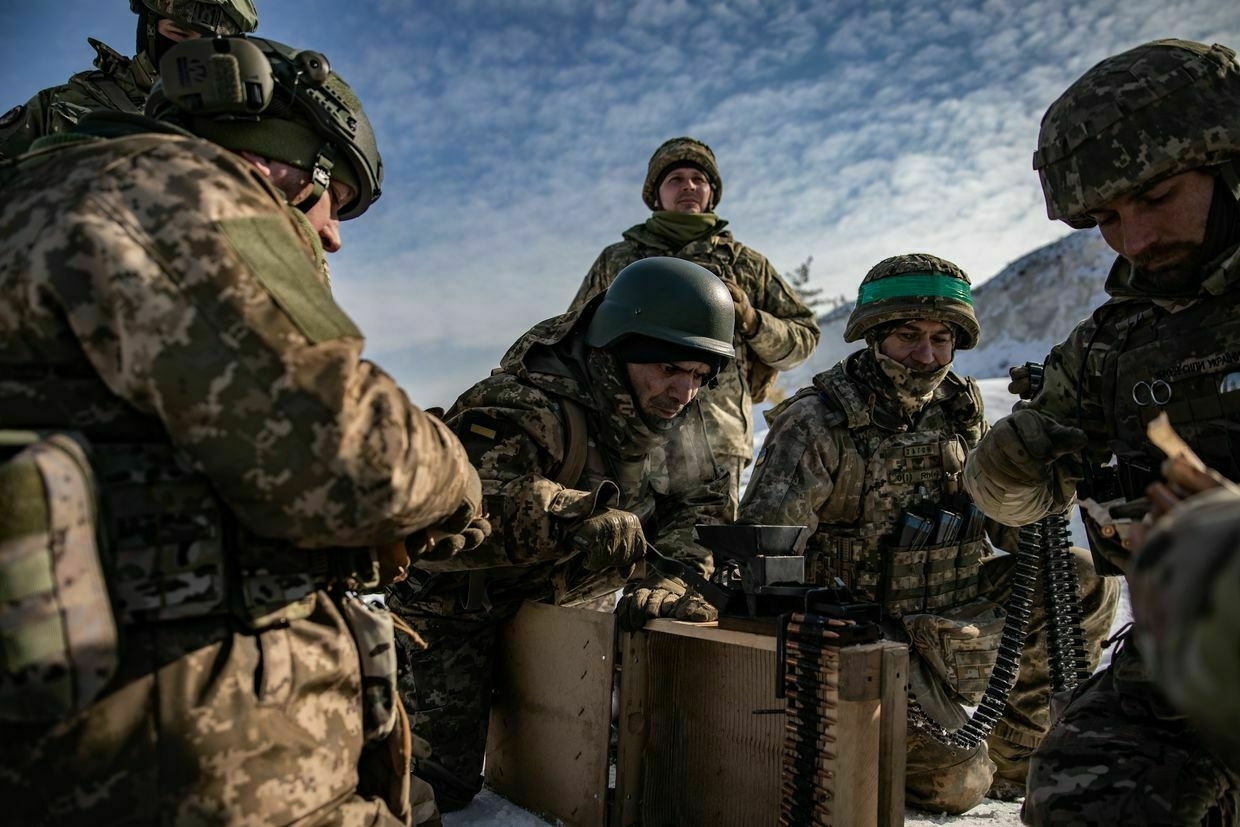
-
Trump - Putin Call. What Next for Ukraine and the World?
-
Trump, Putin hold call, White House Deputy Chief of Staff says
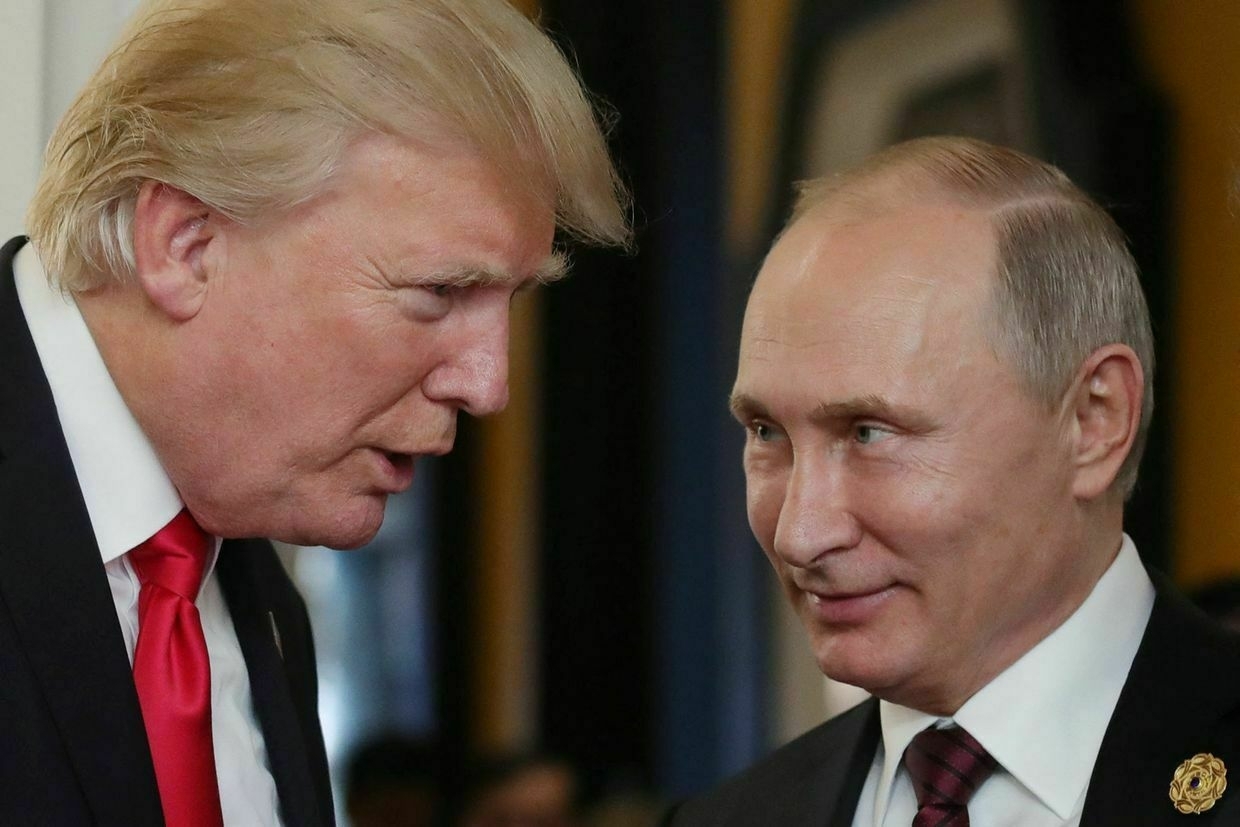
Editor’s note: This story is being updated.
U.S. President Donald Trump has been speaking with Russian President Vladimir Putin since 10:00 a.m. EDT, White House Deputy Chief of Staff Dan Scavino said on X.
“Happening now — President Trump is currently in the Oval Office speaking with President Vladimir Putin of Russia since 10:00 a.m. EDT. The call is going well, and still in progress,” he said on X.
-
Polish right takes hard line on Ukraine ahead of presidential vote
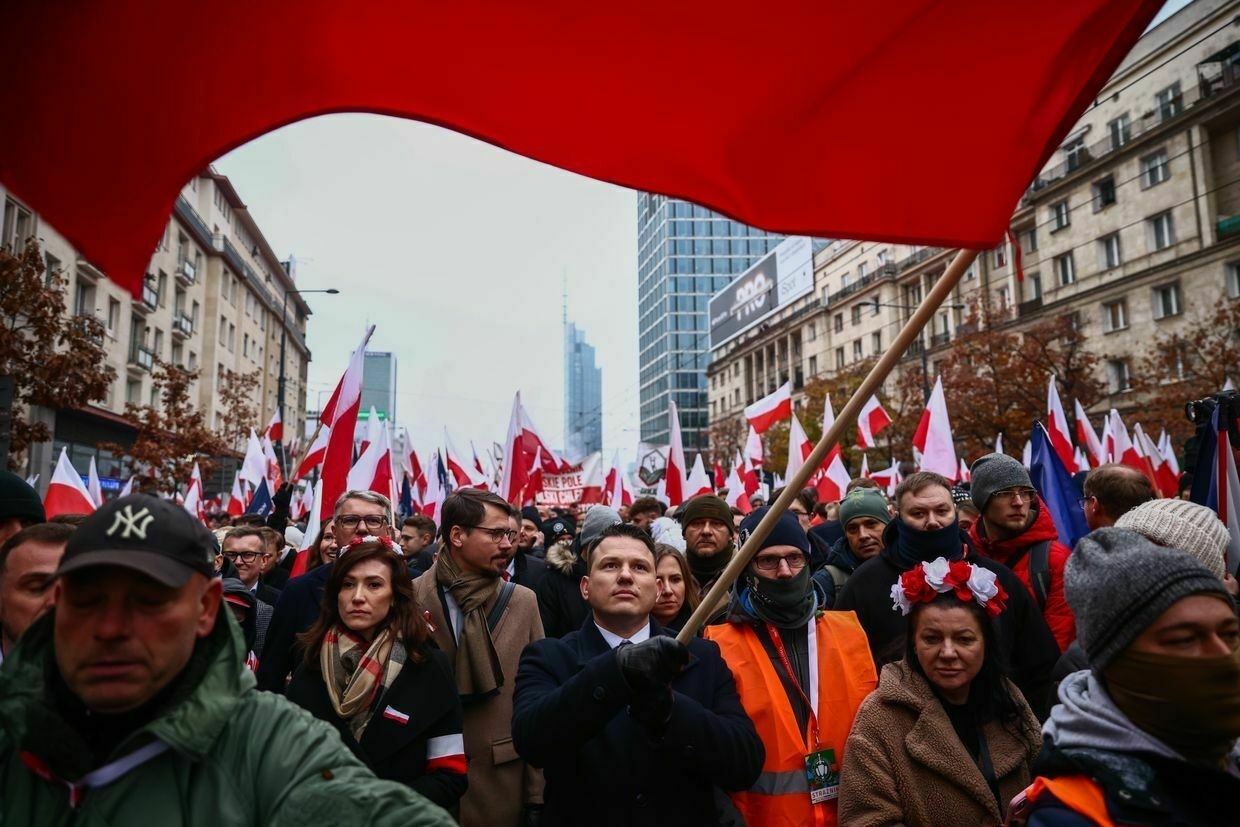
With the Polish presidential elections just two months away, two of the country’s leading right-wing candidates have become increasingly antagonistic toward Ukraine and its leadership.
Kyiv can ill afford another hostile head of state among its key partners, as U.S. President Donald Trump’s foreign policy shift has already thrown the pro-Ukraine coalition into disarray.
Rafal Trzaskowski, 53, a progressive mayor of Warsaw backed by the key ruling party, Prime Minister Donald Tusk’s Civic Platform, remains a clear favorite, polling at around 35%. He faces two opponents from the right, both of whom stand a chance to advance to the runoff scheduled for June 1.
The conservative Law and Justice party (PiS), which led the government from 2015 to 2023 and has an ally in incumbent President Andrzej Duda, has tapped relatively unknown historian Karol Nawrocki as its candidate in the upcoming elections.
Polling at 24%, Nawrocki is only about five percentage points ahead of Slawomir Mentzen, one of the leaders of the far-right Confederation coalition.
Both men have made headlines by public spats with Ukrainian officials and denounced Kyiv as ungrateful for the support Warsaw has provided. Their popularity potentially signals a growing acceptance of anti-Ukraine sentiments in Poland as Russia’s full-scale war entered its fourth year.
The unresolved historical grievances and constant economic disputes between Kyiv and Warsaw have forced even pro-Ukrainian politicians to tread carefully when it comes to dealings with Ukraine.
‘Talk about an invasion is everywhere’ — How Lithuania is preparing for war with RussiaThroughout Russia’s full-scale invasion of Ukraine, repeated and escalating warnings of the potential for a wider war have only raised fears in the Baltic states that they could be next in the crosshairs of the Kremlin. Talk about a potential Russian invasion is “very common at parties, gatherings,…The Kyiv IndependentYuliia Taradiuk
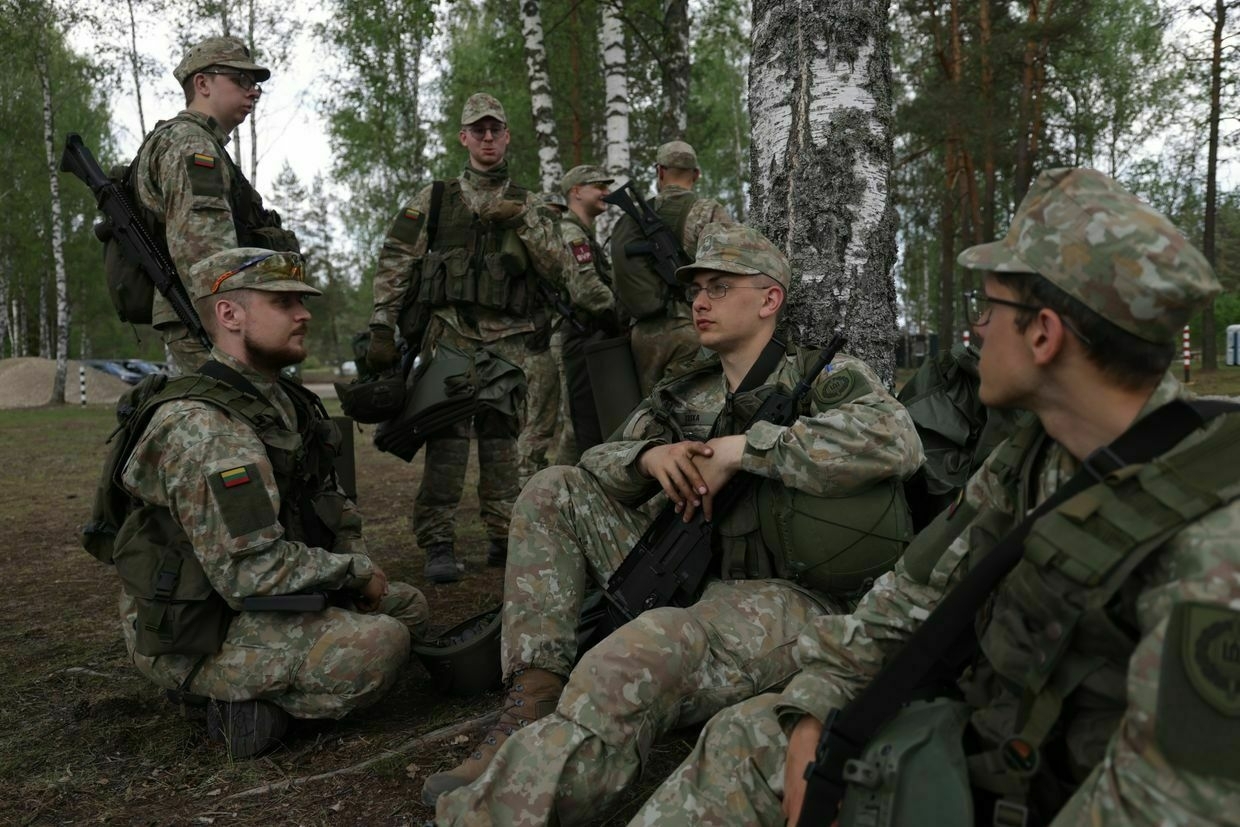
Liberal Trzaskowski has made it clear that “military support for Ukraine is in Poland’s national interest” as “Ukrainians are fighting for our (Poland’s) freedom."
“But we need a sincere conversation about how we see the future of our relations, a sincere conversation about how Ukrainians should take our sensitivity to historical issues seriously, a sincere conversation about how negotiations on Ukraine’s membership in the EU will be very difficult and, unfortunately, will last for many years,” he then added.
Karol NawrockiNawrocki, 42, is a historian who heads the Institute of National Remembrance, a state agency that studies the crimes committed during World War II and Poland’s communist era.
This professional background seems to have shaped his political views, which are marked by clear anti-communism and distaste for Russian expansionism.
The conservative politician, who is on Russia’s wanted list over the demolition of Soviet memorials in Poland, recently suggested cutting diplomatic ties with Moscow, as “maintaining diplomatic ties with a barbaric state is not good for Poland."
But that doesn’t mean the historian-turned-politician is pro-Ukraine.
While pledging that Polish support for Kyiv will continue if he is elected, Nawrocki signaled he wants to see more gratitude for the assistance provided to both Ukrainian front-line soldiers and refugees.
Nawrocki also declared that Ukraine would not be able to enter NATO or the EU without resolving the issue of the Volyn massacres — a sentiment shared by many Polish politicians across the aisle.
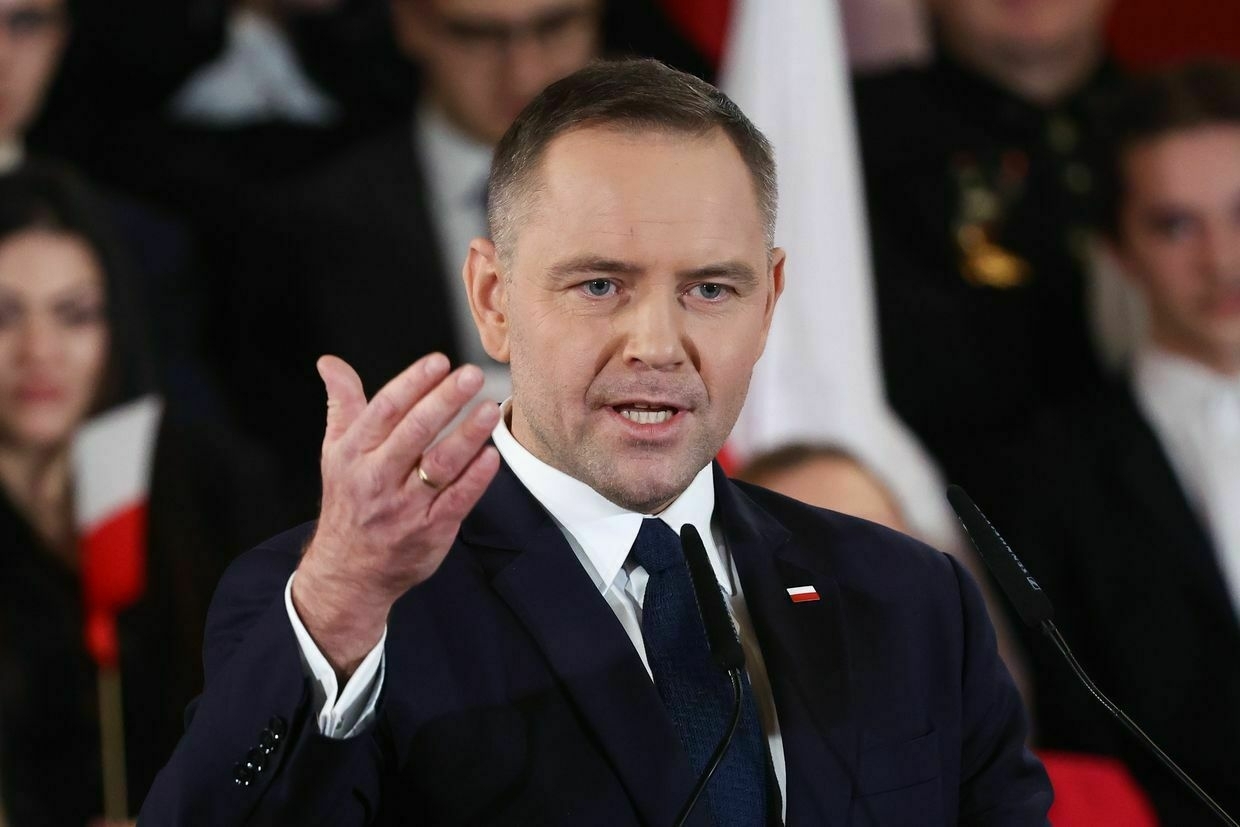
Karol Nawrocki during the convention in Krakow, Poland, on Nov. 24, 2024. The largest Polish opposition party Law and Justice nominated Nawrocki for president. (Jakub Porzycki / NurPhoto / Getty Images) “Today, I do not see Ukraine in either structure, neither in the European Union nor in NATO, until those important civilizational issues are resolved," Nawrocki said in January in reference to the World War II-era massacre of Poles by the Ukrainian Insurgent Army in the present-day Volyn Oblast of Ukraine.
The Volyn massacres, which saw tens of thousands of Poles living in Nazi-occupied Volyn killed and thousands of Ukrainians killed in reprisal attacks in 1943-1944, remain the most contentious topic in Polish-Ukrainian relations.
“Unfortunately, Ukraine has been playing the role of a ‘scapegoat’ for Polish politicians for quite some time now, a trend that began during the 2023 parliamentary campaign.”
When Tusk hailed a joint breakthrough in efforts to exhume Polish victims in modern-day Ukraine, Nawrocki dismissed the announcement as an "unnecessary trick."
Some of Nawrocki's sharpest comments were aimed personally at President Volodymyr Zelensky.
When nearly all European politicians — including Tusk — rushed to support Zelensky after his heated Oval Office exchange with Trump, Nawrocki, as well as the rest of PiS, backed the U.S. president instead.
Nawrocki even said that the subsequent pause on U.S. military support was the "result of President Zelensky's lack of gratitude and lack of ability to conduct international policy."
This bellicose rhetoric may seem at odds with PiS, whose past government led the charge in providing Ukraine with arms and other support during the full-scale war. But as the elections are coming near and the Ukraine fatigue is setting in, the conservative party may be shifting gears.
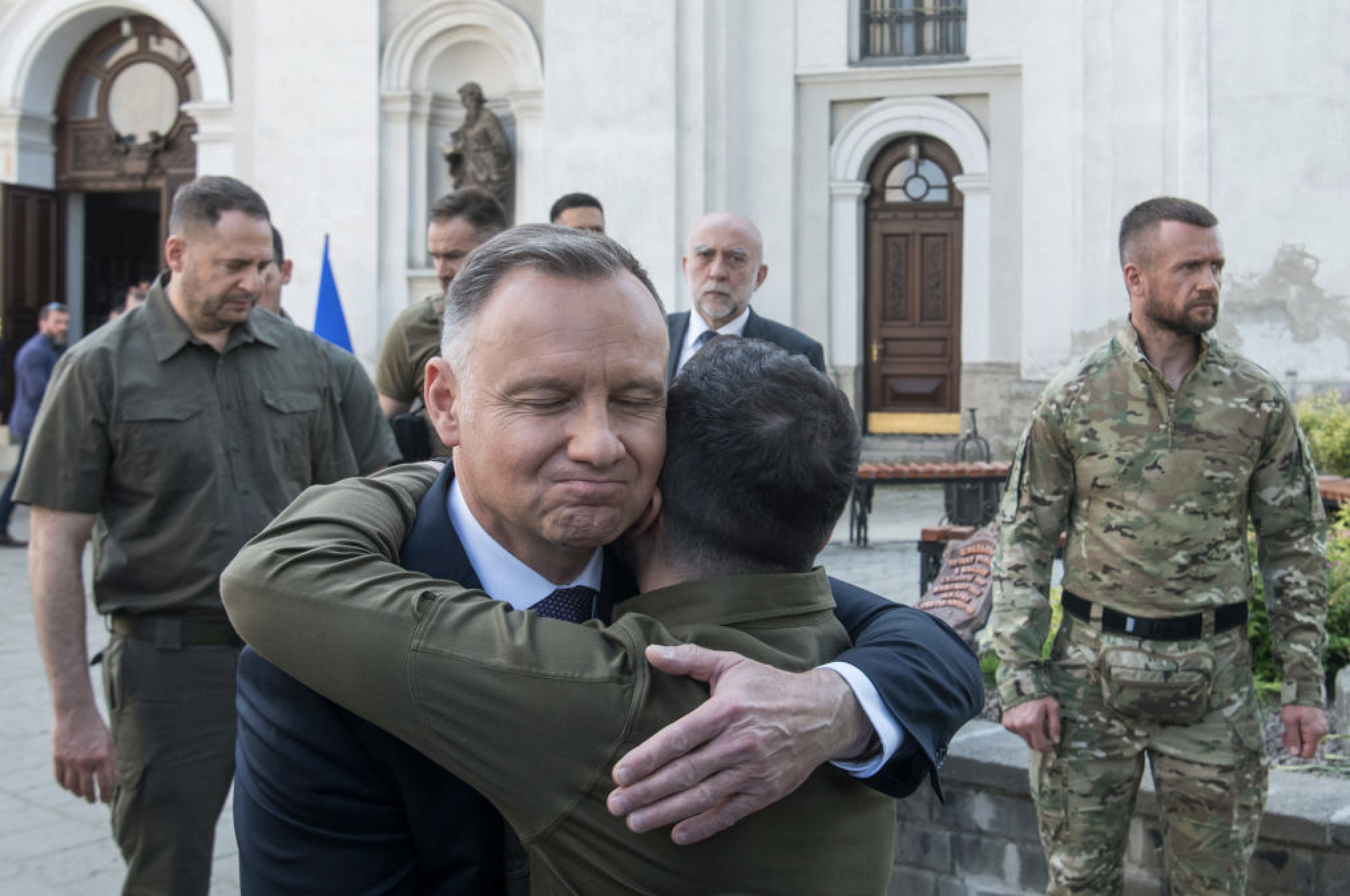
President Volodymyr Zelensky and Polish President Andrzej Duda after commemorating the victims of the Volyn Massacre in Lutsk, Ukraine, on July 9, 2023. (Maxym Marusenko/NurPhoto via Getty Images) "I suspect these are his (Nawrocki's) original views that were muted at the beginning because of the party policy, but now, because they are fighting for the same part of the electorate (as the far-right), he was 'let loose,'" Polish political scientist Pawel Borkowski told the Kyiv Independent.
Nawrocki's main opponent for second place, and thus a potential contender to face Trzaskowski in the runoff, is far-right Mentzen. His Confederation and PiS are likely to battle over rural voters and agrarian workers in the upcoming vote.
Farmers, who fear competition from their Ukrainian counterparts, represent a vocal part of the electorate, as their numerous protests and border blockades have demonstrated.
"Unfortunately, Ukraine has been playing the role of a 'scapegoat' for Polish politicians for quite some time now, a trend that began during the 2023 parliamentary campaign," Yevhen Mahda, executive director of the Institute of World Policy in Kyiv, told the Kyiv Independent.
Surveys reveal that the Polish public has grown more skeptical toward Ukraine and, specifically, Ukrainian refugees when compared to 2022.
According to a February poll commissioned by the Mieroszewski Center, 49% of Poles favored continued military support for Ukraine, yet only 40% supported assistance for refugees.
"The motive that Ukraine is not grateful enough is very present" in Polish society, said Aleksandra Kusztal, a political scientist at the Jan Kochanowski University of Kielce, in comments for the Kyiv Independent.
"Some elements (which) are typical for the Russian propaganda, Russian disinformation, are becoming more and more popular," such as the supposed negative impact of Ukrainians on Poland's social and healthcare system, she added.
50% of Poles oppose Ukraine’s EU, NATO membership until Volyn issue resolved, poll showsHalf of Poles believe Ukraine should not join NATO or the EU until the issue of exhuming Volyn massacre victims is resolved, according to a new poll published on Jan. 30.The Kyiv IndependentTim Zadorozhnyy
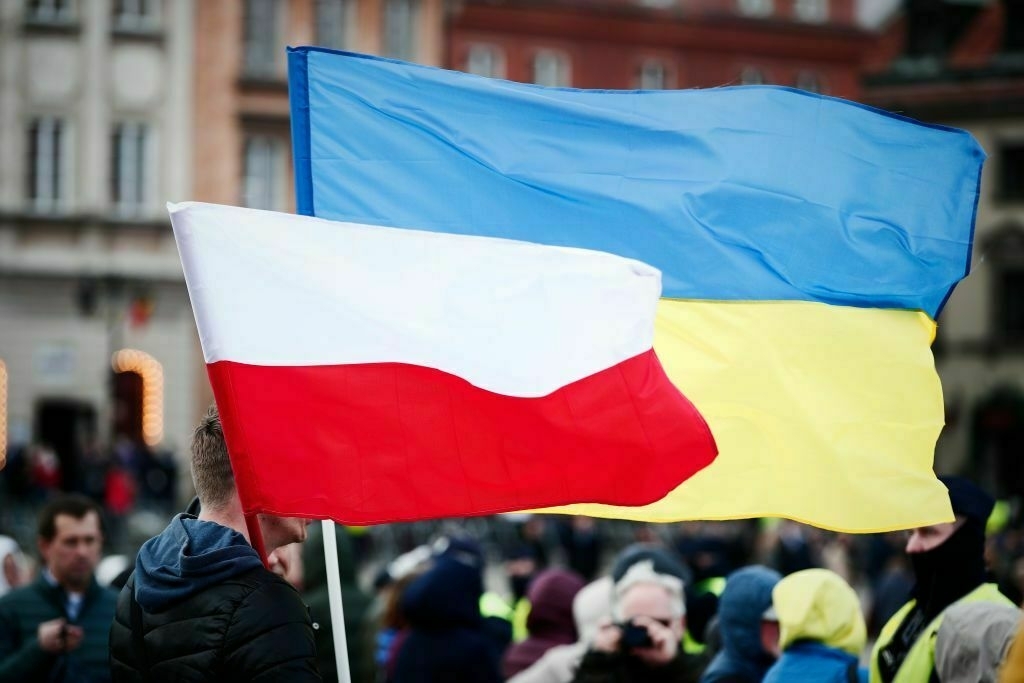
Slawomir MentzenA devout libertarian who voiced support for Polish exit from the EU, 38-year-old entrepreneur and tax advisor Mentzen has become one of Poland's most popular far-right politicians.
His apt use of the TikTok social network and public campaigning make it conceivable that he, not Nawrocki, will face Trzaskowski in the second round.
The Confederation, co-chaired by Mentzen, has long been seen as the only relevant force in Polish politics that could be described as openly hostile toward Ukraine.
During the parliamentary elections in 2023, during which the far-right significantly underperformed, Confederation said that Ukraine should pay for all assistance provided by Poland — an argument eerily echoing those coming from today's Washington.
However, emulating far-right populists across Europe, the Confederation has sought to purge its most controversial elements. Two of the most overtly pro-Russian figures, Janusz Korwin-Mikke and antisemite Grzegorz Braun, have been suspended or expelled from the coalition.

Slawomir Mentzen, co-leader of the Confederation alliance, tosses fake money to supporters during a campaign rally in Szczecin, Poland, on Sept. 16, 2023. (Sean Gallup / Getty Images) Mentzen himself has formally denounced Russian aggression and has largely shaped his Ukraine rhetoric along more transactional lines.
"Yes, it is profitable for us for Ukraine to defend itself against Russia, which is why Poles help Ukraine," Mentzen told Polsat. "Not out of sympathy, but because it is simply profitable for us."
"We send weapons to Ukraine, we send money, we send social benefits, we provide medical treatment for free in Poland to Ukrainians who do not even have medical insurance, while Poles have to pay, and in return we receive slander, they insult us and show absolutely no gratitude."
He also said that the West must reach some kind of an agreement with Russian President Vladimir Putin, as "there is no force on the horizon that will drive Putin out of Ukraine."
In some cases, Mentzen does not hesitate to push further. One episode that caught the attention of both Polish and Ukrainian media was his public spat with Lviv Mayor Andrii Sadovyi.
After visiting the western Ukrainian city on Feb. 24, Mentzen published a video near the monument to Stepan Bandera, calling the late Ukrainian nationalist a "terrorist" and accused Ukraine of "worshipping criminals."
Bandera, assassinated by the KGB in 1959, led the radical wing of the Organization of Ukrainian Nationalists and organized the assassination of Polish Interior Minister Bronislaw Pieracki.
Sadovyi lashed out against Mentzen, calling him a "pro-Russian politician with a Polish passport." Mentzen then named Lviv, which was part of Poland in the interwar period, a "culturally Polish city," a statement with explosive connotations during the ongoing Russian occupation of one-fifth of Ukraine.
Experts largely agree that this was a public stunt rather than a serious attempt at territorial revisionism, a topic with almost non-existent appeal in Polish politics.
"It was a pure provocation," Kusztal commented, calling Mentzen's campaign nevertheless "very strongly connected with Russian propaganda."
Kusztal presented Mentzen's anti-Ukraine rhetoric as "something quite new in his political biography." The expert suggested it could be a tactic to steal voters from Braun, who announced his own candidacy.
According to Borkowski, Mentzen wanted to strengthen his appeal across the various right-wing groups that make up the Confederation.
"Slawomir Mentzen's conflict with Andrii Sadovyi was staged and election-driven," Mahda concurred. "However, this does not negate the fact that historical policy plays a much greater role in public discourse in Poland than it does in Ukraine."
Who is to gain more from a ceasefire — Russia or Ukraine?U.S. President Donald Trump said on March 17 that he expects to hold a phone call with his Russian counterpart Vladimir Putin to discuss a U.S.-backed ceasefire proposal that Moscow has yet to agree to. Russia has declined to immediately accept the 30-day ceasefire proposal, with theThe Kyiv IndependentOleg Sukhov
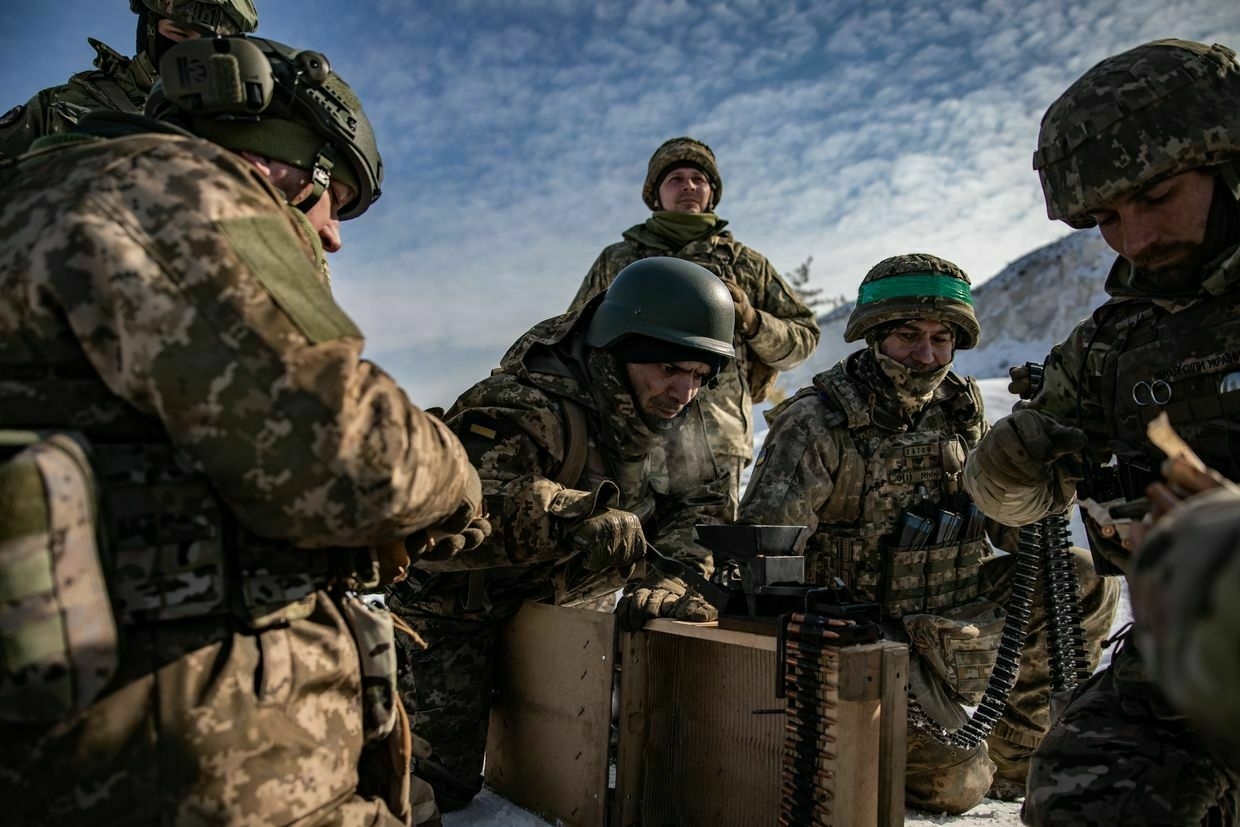
Note from the author:
Hi, this is Martin Fornusek.
I hope you enjoyed this article. If you want to help us provide you with more in-depth pieces on Ukraine's struggle against Russian aggression, European politics, and more, please consider joining the Kyiv Independent community.
Thank you very much.
